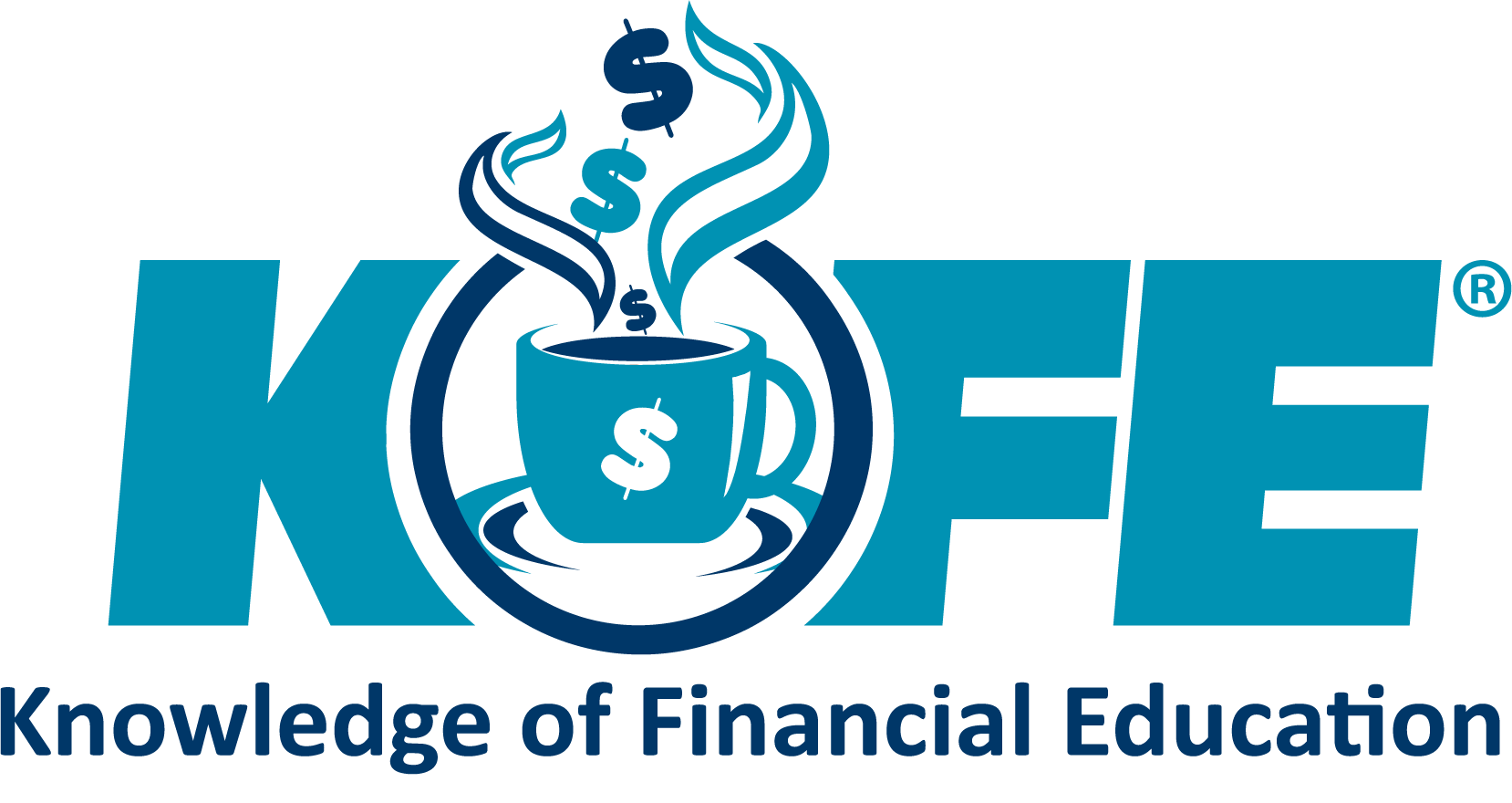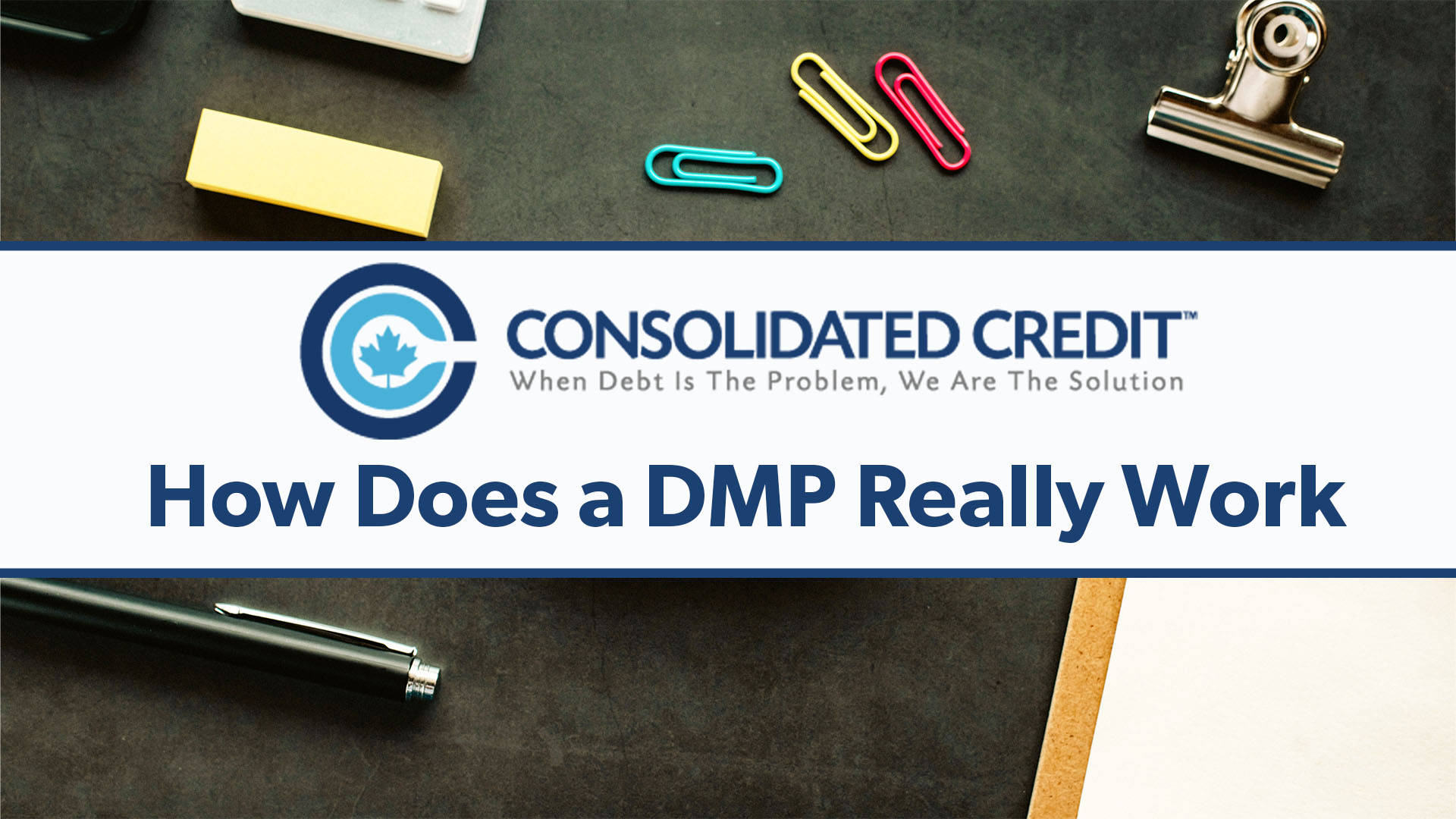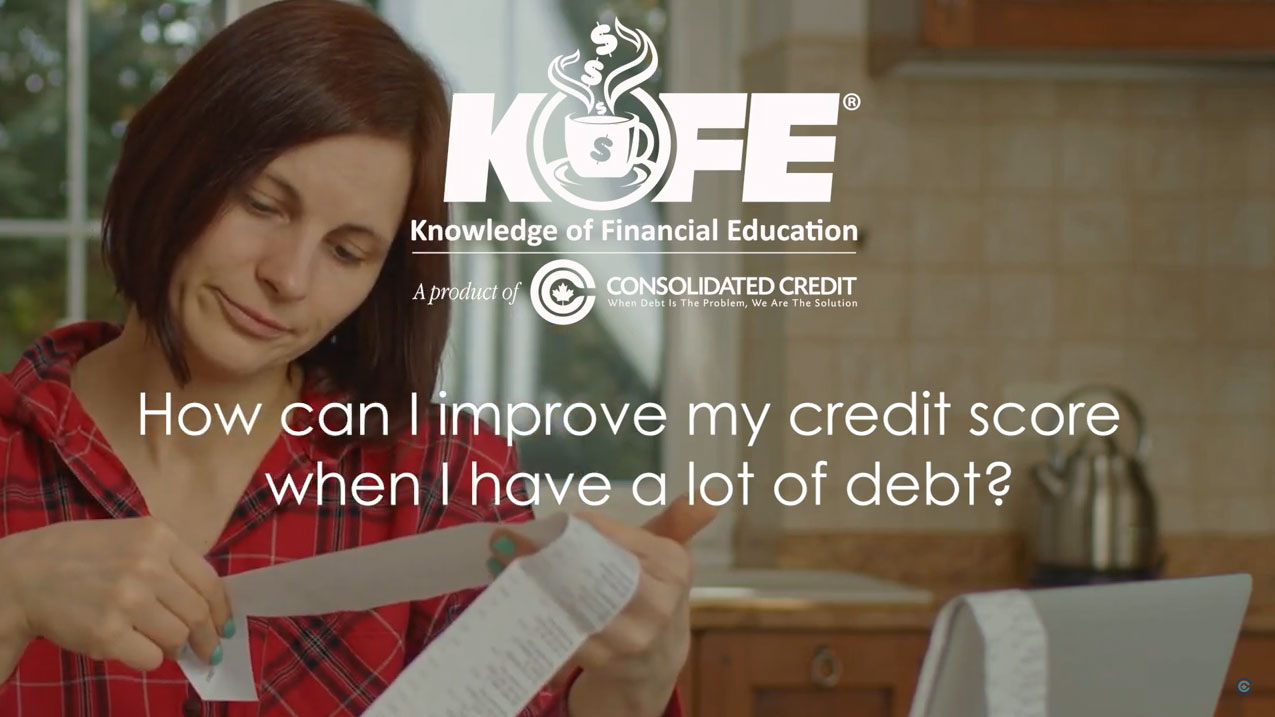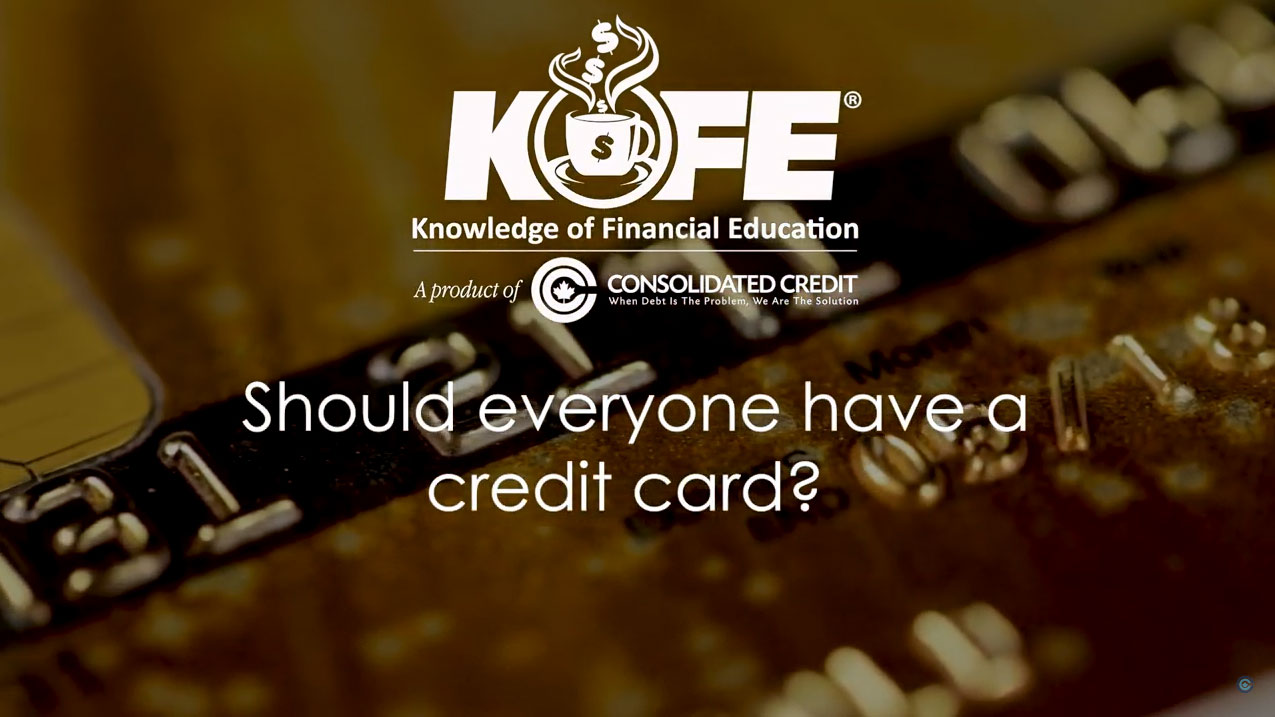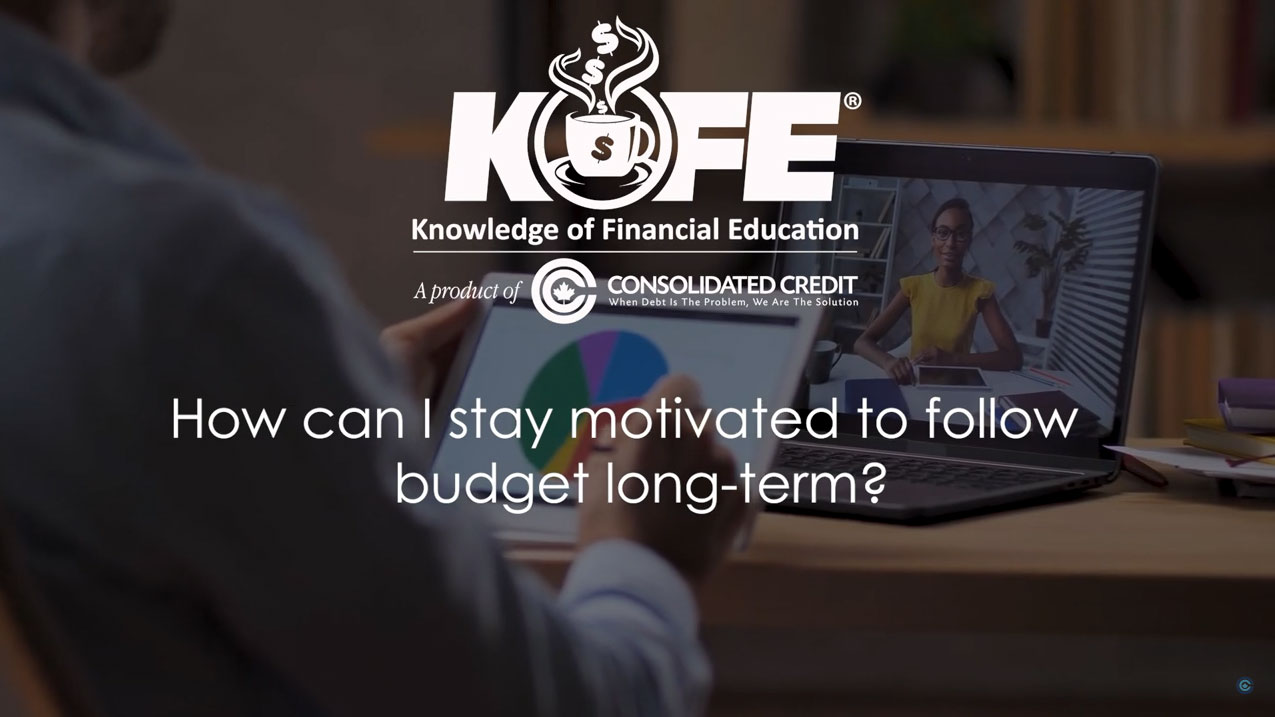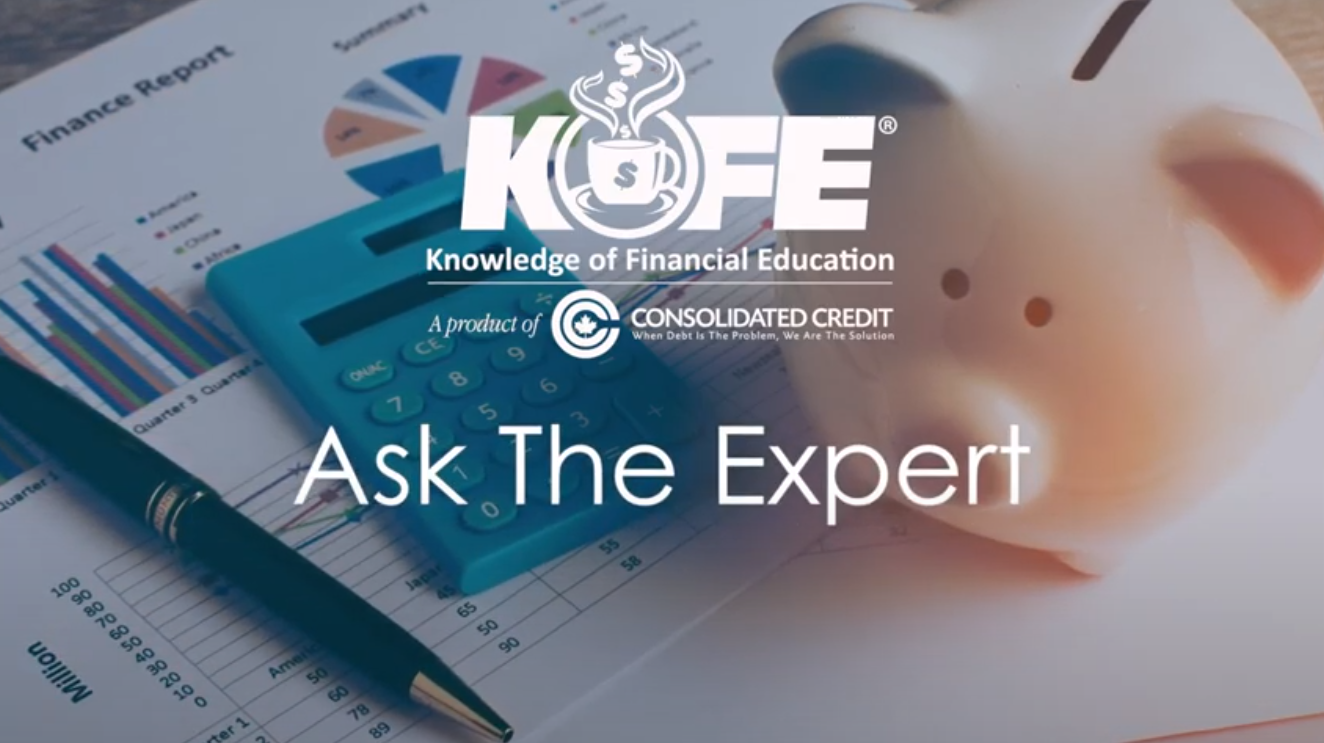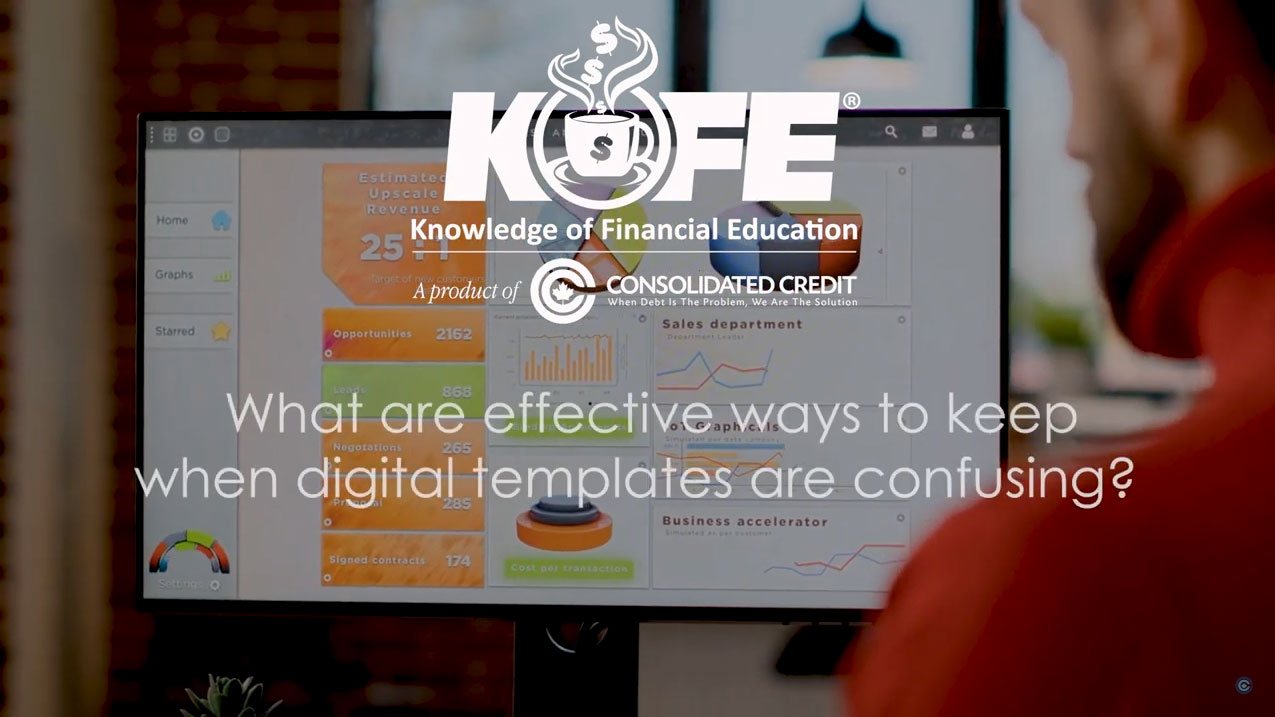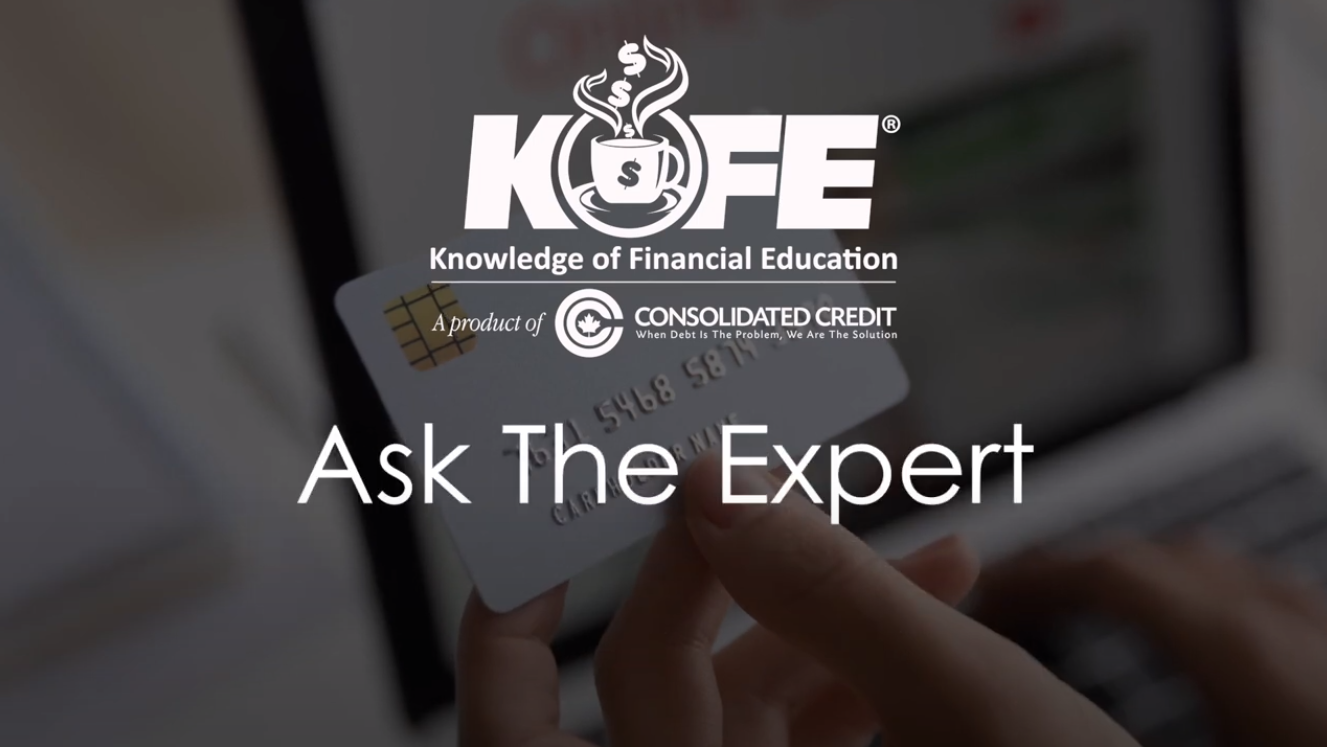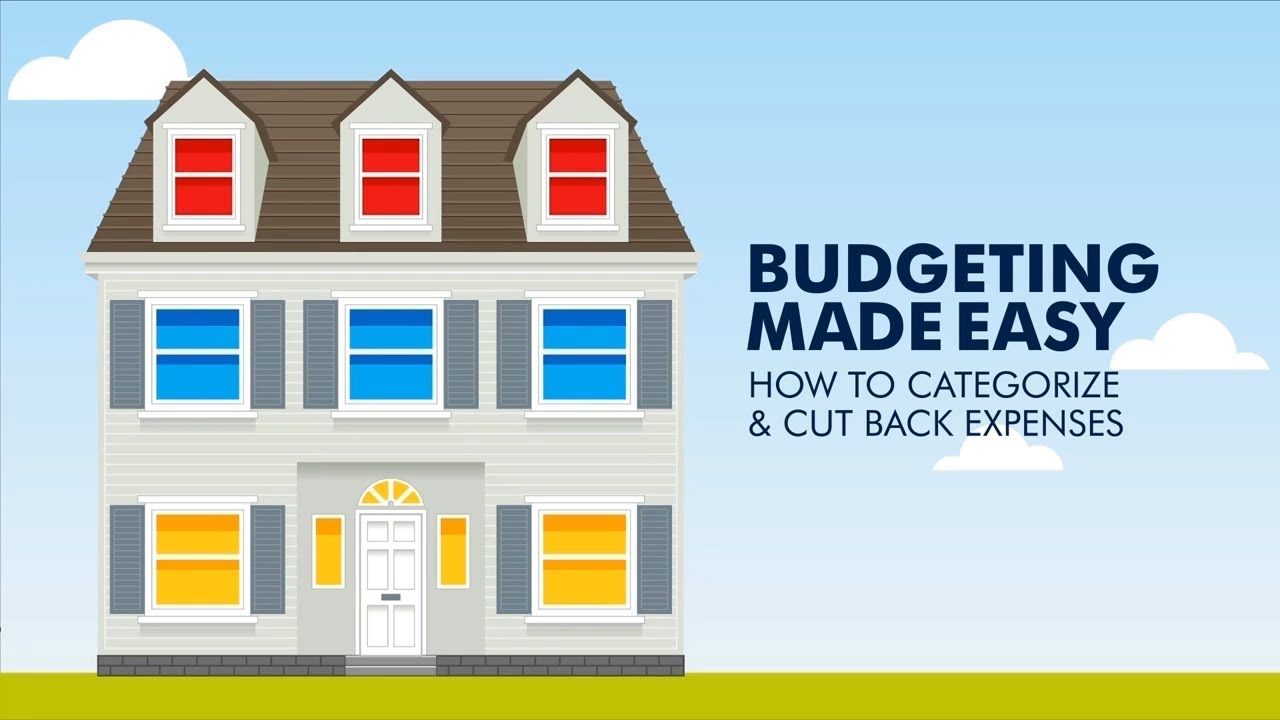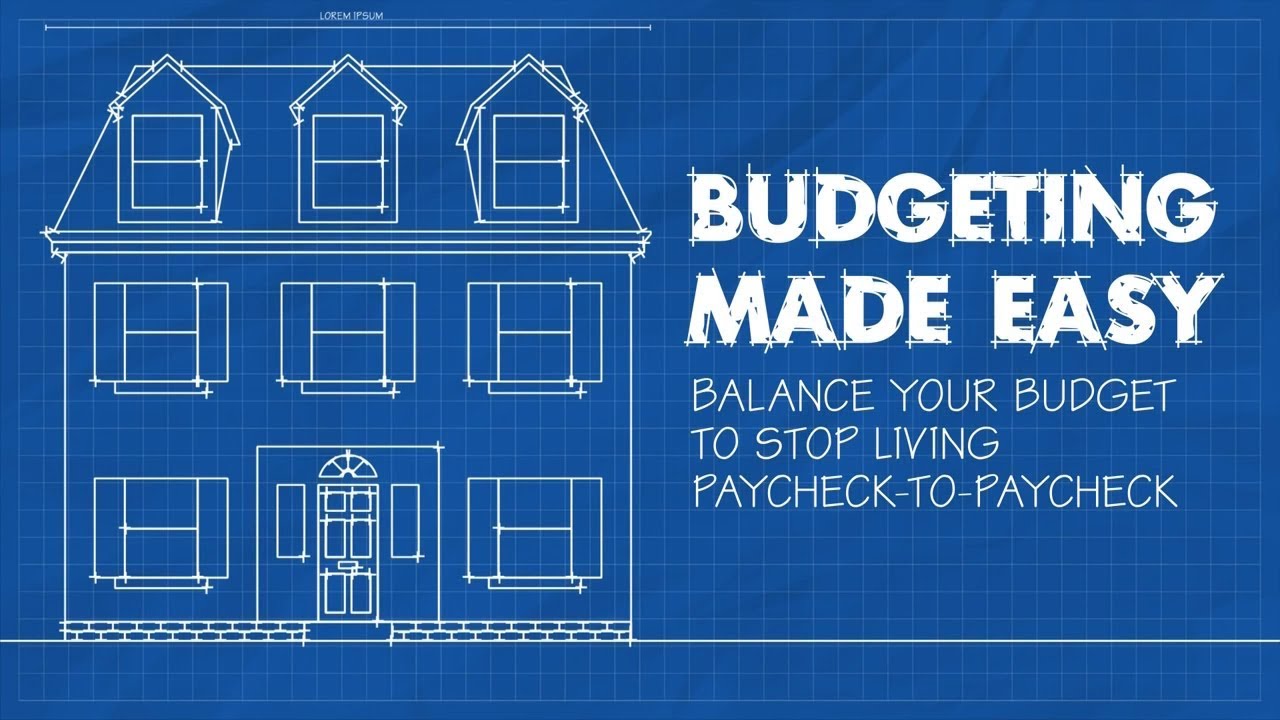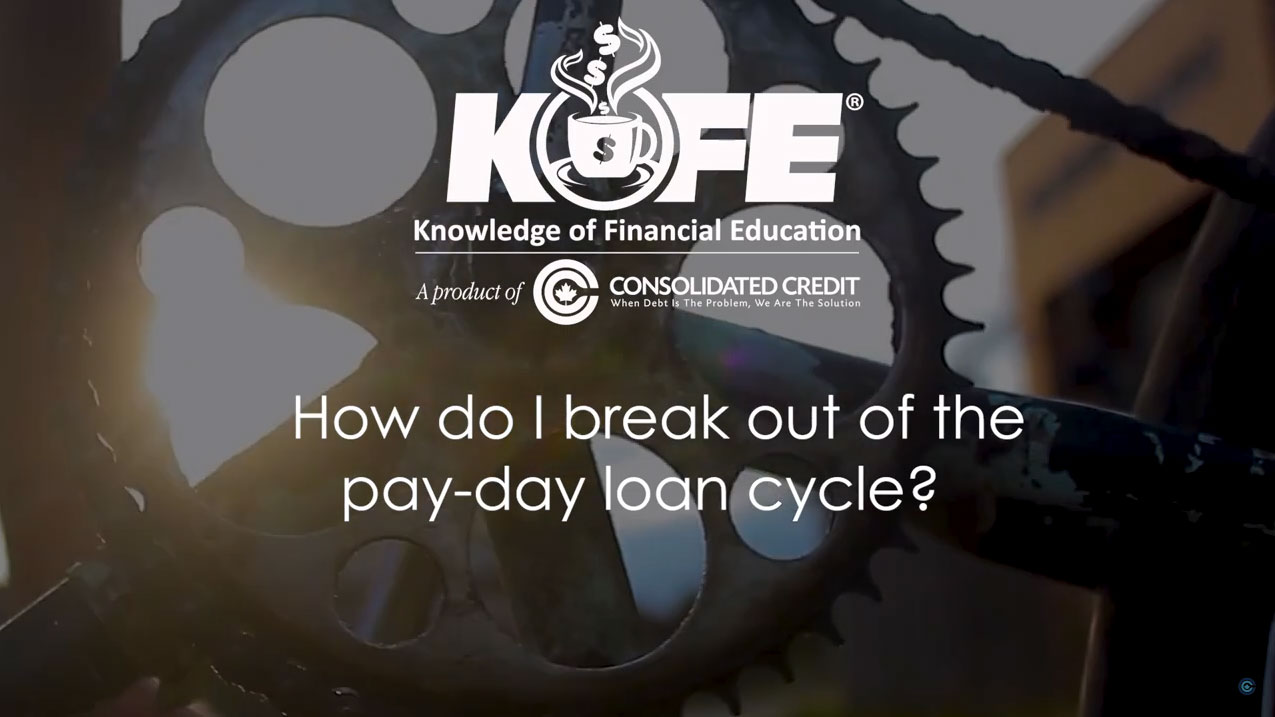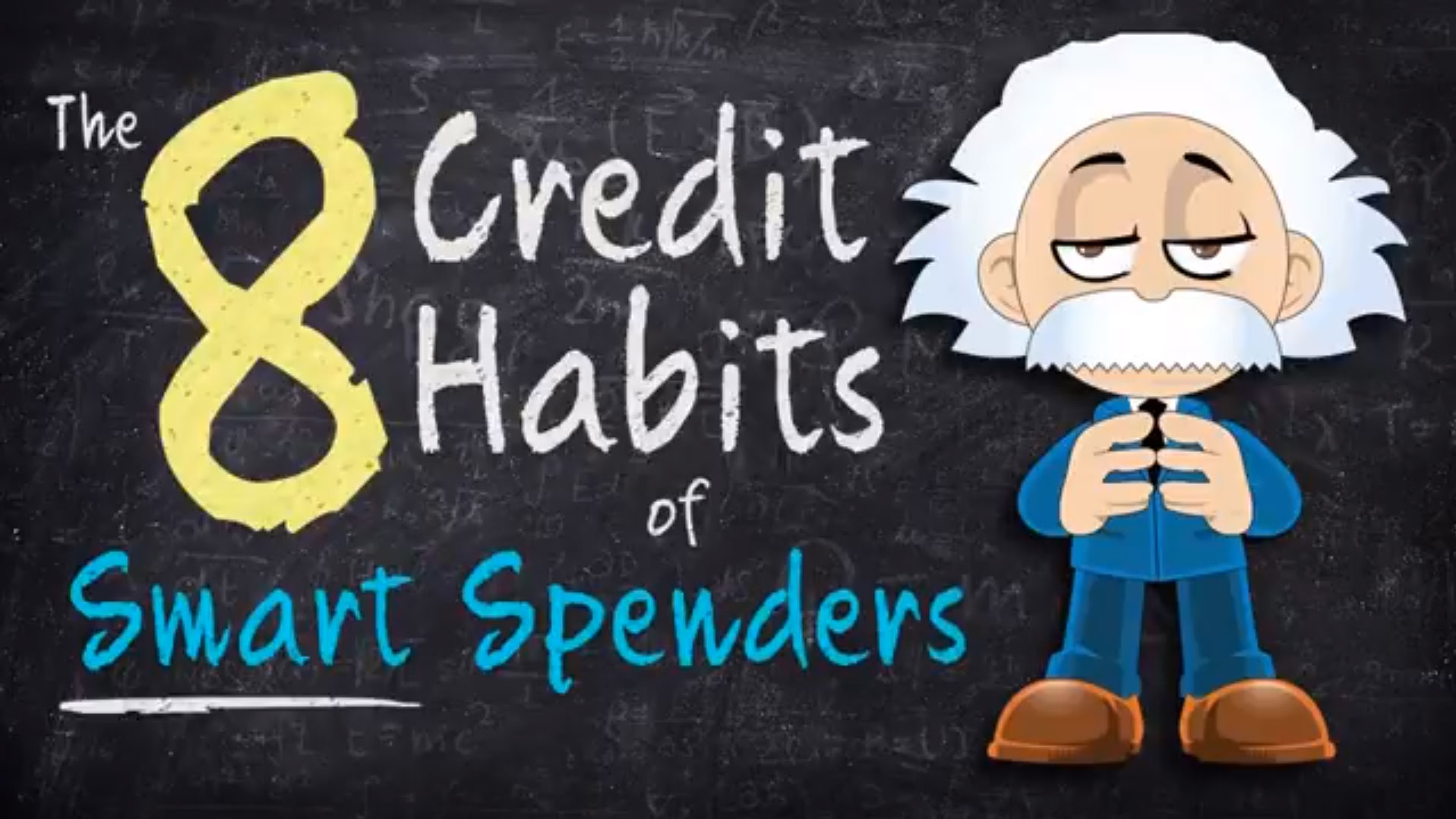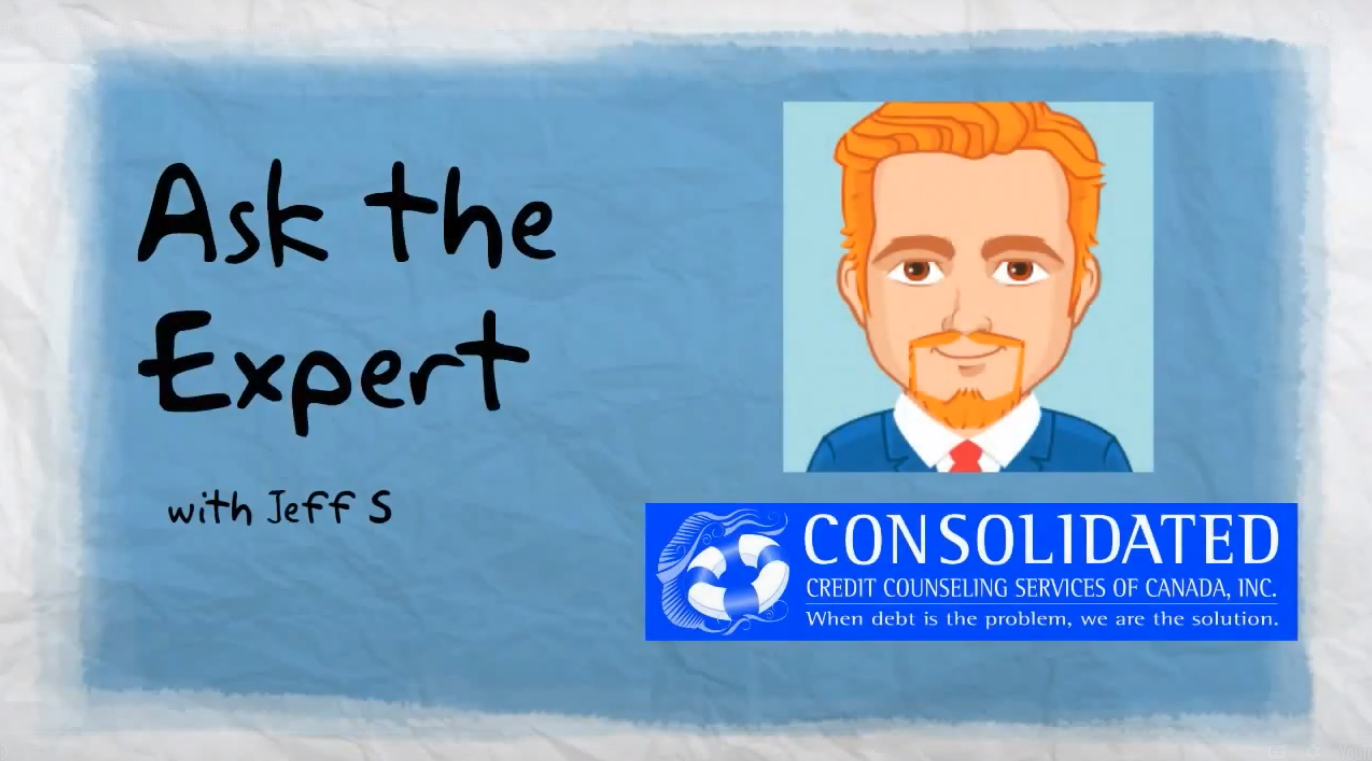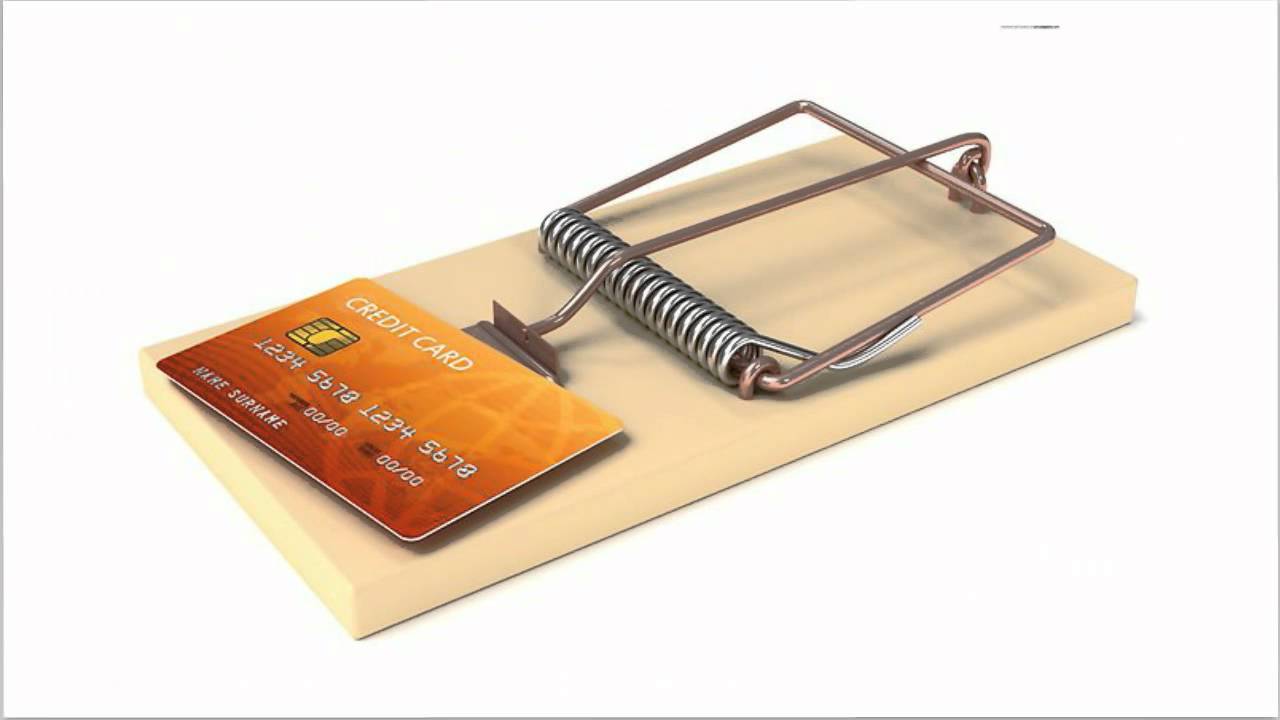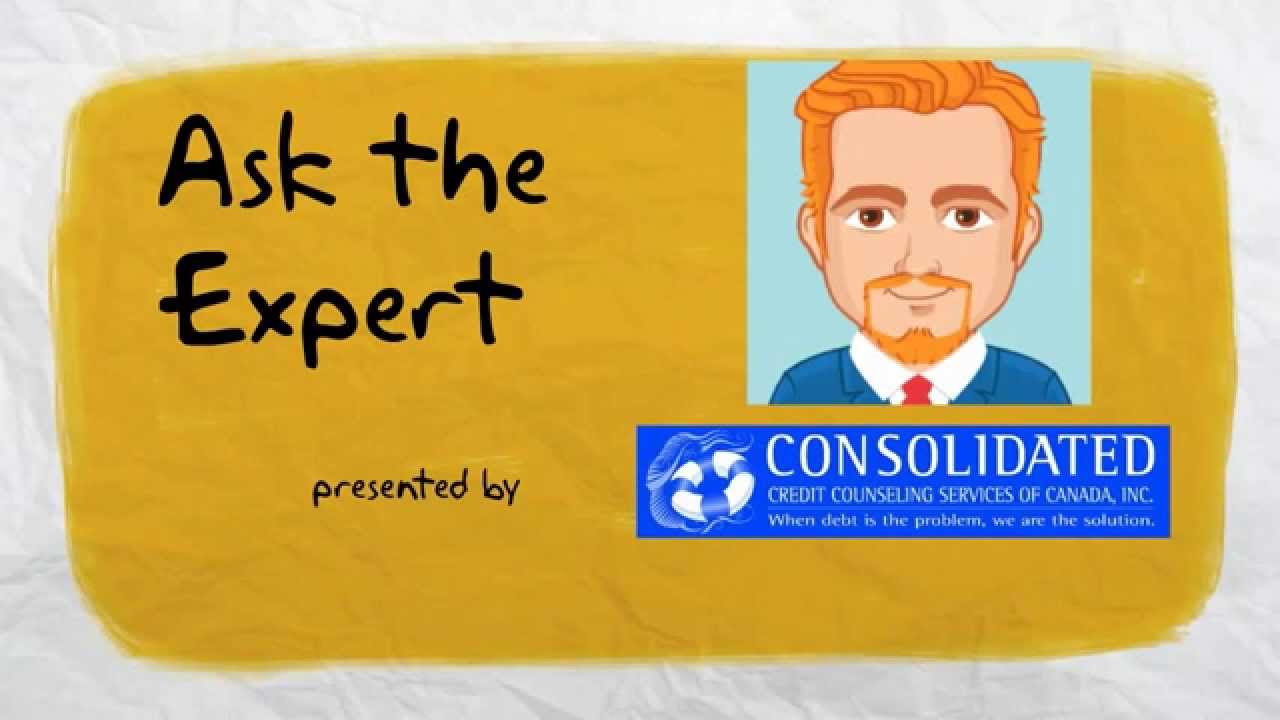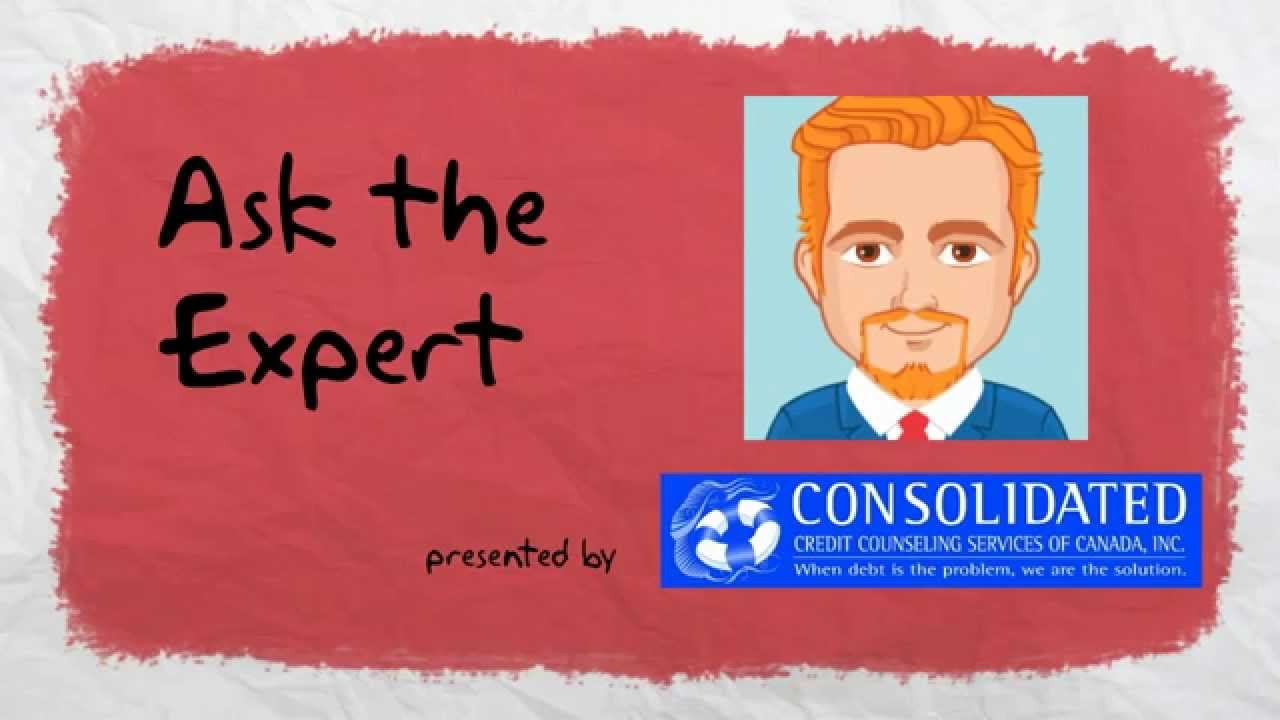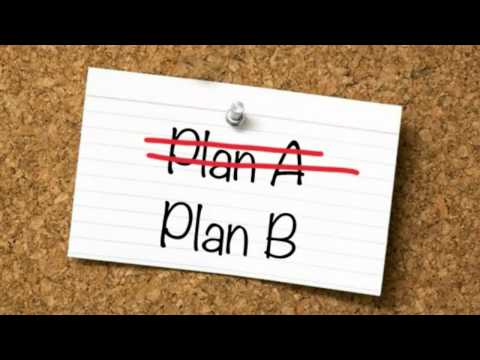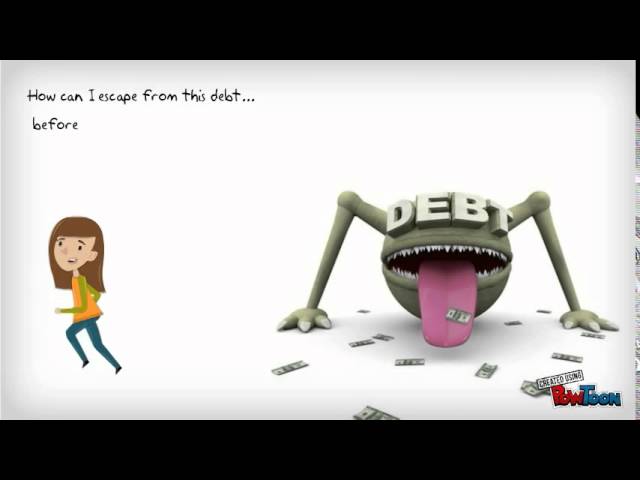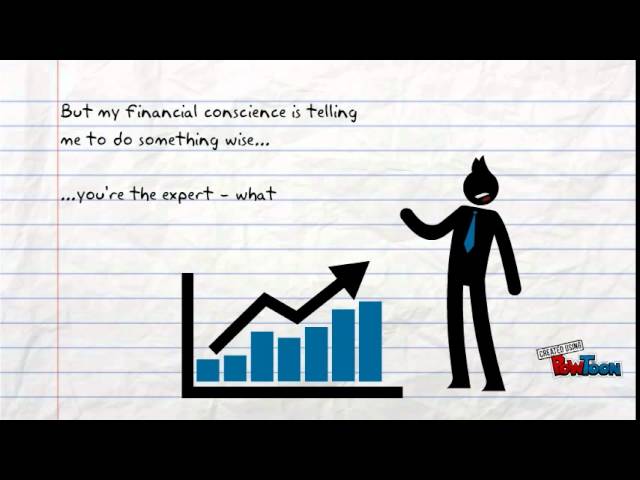Ask The Expert: Different Financial Viewpoints
Our resident finance expert, Executive Director Jeffrey Schwartz, answers your questions about credit counselling and personal finance in general. As the founder of Consolidated Credit (http://www.consolidatedcredit.ca) and President of the Credit Association of Greater Toronto (CAGT), Jeff provides valuable insight to address your financial concerns. You can ask your own questions by emailing Jeff at [email protected].
How Does a DMP Really Work?
Featured
Join Consolidated Canada’s Executive Director, Jeff Schwartz, as he demystifies the workings of debt managem...
View Transcript Watch VideoHow does a debt management plan really work, myth versus reality.
When I tell people there’s a proven program that can possibly reduce their total payments by up to 30 or even 50%, they sometimes laugh at me.
They say that’s impossible Jeff, it can’t be that easy.
There are people who promise to wipe out your debt entirely and they want to charge you a fee before they do it.
Well, I’m here to tell you, when you call Consolidated Credit, you get a free debt analysis and if our trained counselors recommend you for a debt management program, you pay nothing up front.
We work with both you and your credit card companies to eliminate interest charges and stop future penalties and fees.
We’ve helped hundreds of thousands of Canadians and if you want to know more about the facts of a debt management program, you can make a free call right now.
Ask the Expert: Jeffrey Schwartz Explains Recent Bank Failures
Featured
In March when Silicon Valley Bank, Signature Bank, and Credit Suisse closed within 3 days of one another, many...
View Transcript Watch VideoIn the middle of March, over just three days, two banks in the United States failed. First, there was Silicon Valley Bank in California. Then Signature Bank in New York. Three days after that, Credit Suisse failed in Switzerland.
So, what’s going on here? More importantly, do you need to worry about it?
The answer is simple: No! You don’t have to worry. Not at all. This isn’t the beginning of a scary trend. Bank failures are rare. In fact, in Canada, no bank has failed since 1985. Before that, you’d have to go all the way back to 1923 to find a Canadian bank that went out of business.
To put this in perspective, no Canadian bank failed during the Great Depression, World War II, or the Great Recession. And in those rare times they do fail? You’re protected.
The Canada Deposit Insurance Corporation, or CDIC, guarantees you’ll get your money back if a bank fails. It covers up to $100,000 per account. You don’t even have to do anything. No paperwork. No phone calls. The CDIC automatically returns any money you had in the failed bank – up to $100,00, which is more than most of us have in any single bank account.
In the United States, their CDIC is called the FDIC. It guaranteed the deposits for account holders in the Signature and Silicon Valley banks.
I’ve been asked by worried people if they should do something, since so many banks are failing in the span of just a few days. My advice has been: Do nothing. Unless you have over $100,000 in a single bank account, don’t let this coincidence distract you from saving and budgeting.
Canadians need to focus on their own money, so THEY don’t fail. Consolidated Credit can help. We offer a free debt analysis when you call one of our trained experts. From there, we’ll give you all the options so your finances will never fail.
Retire your debt before you retire from your job
Featured
Jeffrey Schwartz, Executive Director of Consolidated Credit Canada, discusses a concerning financial matter, t...
View Transcript Watch VideoLast week, I read an excellent article in the Globe and Mail that was just terrible. That’s not as odd as it sounds. The article was wonderfully reported and written, it was just a topic that disturbed and depressed me.
It was about elderly Canadians who are retiring from their jobs before they retire their mortgages. Now, nothing ruins your golden years quite like owing money when you’re no longer working. But that’s exactly what’s happening. And the problem is getting worse.
In 2016, 1.2 million Canadians older than 65 had balances on their mortgages. Five years later, that ballooned to 1.5 million. With rising inflation and a slowing economy, you can bet that number will grow once they add up the 2022 results.
Mortgages are almost always the biggest debt a human being can have. If you leave the workforce without owning your home free and clear, then a chunk of your retirement savings goes to paying off debt instead of enjoying your life.
Now consider this: The average mortgage in Canada is a little over $300,000. Paying off even a portion of that every month will have serious consequences for the elderly. Obviously, many of these seniors will need to sell their homes and move somewhere smaller and cheaper. But these days, with interest rates rising, that’s not so easy. In fact, the Globe and Mail story ends with a financial planner saying, “It’s harder as you get older to get your head around these changes.”
Here’s one change that EVERYONE needs to get their head around: Debt will shorten your lifespan. You shouldn’t live with it, you shouldn’t retire with it, and you certainly shouldn’t die with it. Luckily, the first step is the easiest. And the cheapest. You call Consolidated Credit for a free debt analysis from a trained counsellor.
Carolyn Rogers: The Most Powerful Canadian You’ve Never Heard Of
Featured
Carolyn Rogers, Senior Deputy Governor of the Bank of Canada, recently gave a speech titled, “Financial stab...
View Transcript Watch VideoDo you know this woman? You should. But she’s not a politician. Or a musician. Or an actor. Or a sports star. Her name is Carolyn Rogers, and she might just be the most powerful Canadian you’ve never heard of.
Carolyn is senior deputy governor of the Bank of Canada. The Bank of Canada is the nation’s central bank, and it sets monetary policy for the entire country. Carolyn Rogers leads that central bank, and she recently gave a very interesting and very passionate speech. Well, passionate for a banker.
Her speech was titled, “Financial stability in times of uncertainty.”
Now, it’s important to know that Rogers leads an institution that can raise interest rates, which means the bank can affect everything from your mortgage to your credit cards, not to mention the entire economy.
The Bank of Canada has been raising interest rates to, in Rogers words, “tame inflation.” But there’s a serious downside.
Rogers acknowledged that when she said, “The bottom line is that mortgage costs for some Canadians have already increased, and they will likely increase for others in time, making home ownership more expensive.”
While Rogers says this is necessary, she also said, “This is not to minimize the very real hardship that some are feeling.”
So why am I telling you about a woman you don’t know? Simple. She’s an expert on money, and she’s warning you that things might get worse before they get better. Listen to her. The worst thing you can do right now to survive rising inflation and higher interest rates is…nothing. Now is the time to act. You need to pay down the debts you owe, so when the economy comes roaring back, you can roar with it. It sounds counter-intuitive, but now is the best time to pay down debt – before those rising interest rates gobble up all your cash. Consolidated Credit can help you.
Planning for retirement doesn’t have to be so tough, you just have to ask the right questions.
So, developing a plan from these answers will alleviate the stress as we ease into our golden years.
At a high level, you will need to consider:
- What you want to do in retirement
- What your expenses are now and what do you expect they will be in retirement
- When you will start your retirement
- Factor in a buffer for expenses you may not have now, like medical or homecare expenses
- Add inflation into your numbers so that you will have what you need
Start by estimating your income from all sources, pension, government support, savings and RRSP’s.
Next, look at your expenses, as a starting point, it’s believed that you will need between 70-80% of your current income in each year of retirement to cover your living expenses.
The problem is that your living expenses can quickly change based on your health and lifestyle choices.
So, if you intend to travel, support your grandchildren, or take up a new hobby, this should be a part of your retirement planning.
It’s also important to eliminate personal loans and credit card debt prior to retirement so that your savings and income can go towards your needs, not servicing debt.
Whether you’re beginning your planning or well into it, it’s a good idea to speak to a financial professional, like a KOFE coach, to ensure you set yourself up for a stress-free retirement.
The first step to improving your credit score is knowing what it is and how it is calculated.
In Canada, we have two credit bureaus, Equifax and TransUnion, that each generate their own credit reports and scores.
To access your credit report for free you can visit the credit bureau websites and apply to see your report, check with your bank, or use free sites like Borrowell and Credit Karma.
If your credit score is above 660, you are in the ‘Good to Excellent’ range.
But if you are dealing with debt issues, your score will have likely decreased.
Two major components of how your score is calculated are how you have paid your credit accounts in the past and how much you have borrowed compared to your limits. This makes up about 65% of your credit score.
So, if you are late on payments and maxed out your credit cards, the simplest way to improve your financial situation and credit score is try to pay-off outstanding balances one-by-one while ensuring you make, at least, minimum payments on time.
There are two common approaches to tackling debt:
- You can either start by paying-off the most expensive, high-interest, debt first and work your way down or
- You can start with the smallest amount of debt and work your way up.
With either strategy, you need to budget and stay committed while not adding to any of these debt amounts.
Over time, and please be patient here, your credit score will improve as you pay down your debt, and make your payments on time.
Now, if your debt is too much and you’ve decided you need the help of a debt solution, like a debt management plan, consumer proposal, or bankruptcy, your credit score will take a hit but it may be the quickest and cheapest way out.
A poor credit report is not a life sentence, focus on paying down your debt first and then rebuilding from there.
There’s a lot more to learn about credit reports and scores. For more information visit a financial wellness platform, like KOFE, or speak to a professional if you need support.
The short answer is no – you do not need a credit card to live your life.
There are many ways to purchase items with similar convenience to a credit card, such as debit cards, e-transfers, cheques, and cash.
Nonetheless, just about everyone has at least one credit card. It has become a staple for how you spend money.
It’s no wonder, they are convenient, accepted everywhere, on the phone or online – and even offer rewards points and some financial security from fraudulent activity.
Plus, if you pay off the balance on time each month, your credit score improves.
The problem is– the word credit actually means debt.
When you use a credit card, you are borrowing money.
If you miss your monthly payment or are carrying a balance month-to-month, you can quickly find yourself in trouble with debt.
If you don’t have a credit card, and are planning to get one, or even if you do have one, make sure you have the mindset to use it wisely;
That means;
- Keeping track of your expenses,
- Checking for errors on your statements, and
- Paying off the balance you owe by the due date.
If you do run into trouble, always ensure you make at least the minimum payment to avoid any penalties from your lender.
Have more questions or need help? Contact a financial professional, such as a KOFE coach, for trusted advice.
Staying on a budget long term is like following a food diet for the rest of your life, it’s tough.
However, changing your mindset, your process, and even your target may make it easier.
For most of us, creating a budget and sticking to it is a real chore. You may not know where to start, or not want to face the reality of your situation, but it doesn’t have to be that way.
For starters, there are many options out there that take the stress out of it. Your bank will have some tools you can use and there are some very user friendly and intuitive apps available as well.
But these budget trackers don’t solve the problem of facing reality, and this is where you may have to shift your target.
If you only focus on the restrictive nature of a budget, you won’t get very far and won’t have the motivation to continue.
On the other hand, if you focus on some real tangible fun goals, or you become accountable to someone other than yourself, budgeting will be sustainable because it’s taking you somewhere. Get into the habit of setting and reviewing both short and long term goals.
A short goal may be shopping for the holidays or paying your bills on time, a long term goal may be saving for a vacation or buying a home. These are the new targets, and these are the things that will motivate you to stay the course with your budget.
Getting into the habit of setting these goals and setting them with a partner will help you turn them into a reality. Achieving just one dream is a powerful tool to motivate you to take control of your finances.
Think you need further support? Contact a financial professional, like a KOFE coach, for advice.
Many people ask us, what should I do? Pay down my debt or put money aside in an emergency fund? The simple answer is, put money into an account for emergencies or unexpected expenses before paying down debt.
The amount really depends on your financial situation; however, we recommend approximately 3-6 months of your expenses.
This emergency fund should only be used for unexpected expenses that come up and need to be addressed as soon as possible. The money should be saved in an account where the funds are easily accessible and secure like a bank savings account.
This account will give you a safety net in times of need like a medical emergency, or even job loss. It will protect you in times of uncertainty and financial stress instead of taking on additional debt.
Your emergency fund should have enough in it to cover your needs for 3-6 months in the event you have no income. This will include things like rent or a mortgage payment, food, utilities and other important payments.
If you have a steady job, you might consider the lower end of the range, however if your income varies from one month to the next, you would be safer to save a larger amount.
If you are already struggling with debt, make sure you are making all the minimum payments on your debt, anything above that should go to build your emergency fund.
Once you have saved the amount you need, start reducing your debt by increasing the payment to your highest interest rate debt and the go to the next highest rate debt until all your debt is paid off.
Remember, if you don’t have savings, and life happens, you will need to go further into debt just to pay for those emergencies.
If you need some help getting there, don’t be afraid to reach out to a financial professional, like a KOFE coach, they will help you find the best solution.
Ask the Expert: How does inflation affect future savings?
Featured
You asked and our financial experts have answers. Watch to learn more. ...
View Transcript Watch VideoLet’s talk inflation! It’s important and something we all need to be aware of. What makes it difficult is that many factors go into it, and it’s always changing.
For example, have you ever gone to the grocery store, picked up an item and noticed that the price is higher since the last time you bought it? Well, that’s inflation! And when that happens to many items at the same time, your grocery bill is going to go up.
With prices going up on items that we buy on a regular basis, that means each dollar we spend is actually worth less. Just to give you a benchmark, when stable, we can expect inflation to go up by about 2% each year.
This becomes an issue when it comes to our savings.
If the money in our pocket or savings account isn’t earning enough to keep up with inflation, it will mean that your money’s purchasing power has weakened and won’t be enough when we need it.
Let’s say you put aside $1000 in a savings account or a GIC paying 1%, but inflation is actually going up at 3% per year, the purchasing power of that $1000 will have gone down by the time you want to spend it.
So, to protect yourself against this problem, it’s important to diversify where you keep your savings.
To start, you should keep a portion of your savings in a GIC or savings account so that you can get to it in case of emergencies. However, with the balance, you might consider other investments that have a higher rate of return to protect you against inflation.
That way, your savings will maintain its value for the future so that you are financially secure.
If you’d like to learn more, visit a financial wellness platform, like KOFE, for free resources and tools or contact a financial professional.
The Way We Were in Financial Literacy Month
Budget
Jeffrey Schwartz, Executive Director of Consolidated Credit Canada, explains that while Financial Literacy Mon...
View Transcript Watch VideoFinancial Literacy Month is now over.
November was the official time for you to do three
things according to the Financial Consumer Agency of Canada:
• manage your money and debt wisely
• save for the future
• understand your financial rights
Did you do all those things in November? Did you do any of those things? Probably not and I don’t blame you. I’ve been a debt expert for more than 15 years. Through Consolidated Credit, we’ve helped thousands of Canadians Achieve Financial Freedom but 2022 has been the most difficult year to conquer debt in over a decade.
I love financial literacy month because it puts an important topic out front but there’s a downside to that too. Some people feel bad when they hear all this good advice. These are the lies they tell themselves:
• I’m a bad person because I don’t save enough
• Everyone else seems like they have their lives together and I don’t
• I’m so far behind on my bills I’ll never catch up and no one can help me.
If those lies were true, I wouldn’t have a job. The fact is, Consolidated Credit can help you. I don’t know how badly you think you have it but I know you can live debt free. How can I be so confident because we’ve been helping Canadians through their financial troubles that come with recessions, natural disasters, chronic illnesses, serious accidents, divorces … you name it. I’m very proud that we’ve never failed anyone who wanted to lead a better life, you can too and it doesn’t matter what month it is
Ask the Expert: Jeffrey Schwartz Explains Recent Bank Failures
Budget
In March when Silicon Valley Bank, Signature Bank, and Credit Suisse closed within 3 days of one another, many...
View Transcript Watch VideoIn the middle of March, over just three days, two banks in the United States failed. First, there was Silicon Valley Bank in California. Then Signature Bank in New York. Three days after that, Credit Suisse failed in Switzerland.
So, what’s going on here? More importantly, do you need to worry about it?
The answer is simple: No! You don’t have to worry. Not at all. This isn’t the beginning of a scary trend. Bank failures are rare. In fact, in Canada, no bank has failed since 1985. Before that, you’d have to go all the way back to 1923 to find a Canadian bank that went out of business.
To put this in perspective, no Canadian bank failed during the Great Depression, World War II, or the Great Recession. And in those rare times they do fail? You’re protected.
The Canada Deposit Insurance Corporation, or CDIC, guarantees you’ll get your money back if a bank fails. It covers up to $100,000 per account. You don’t even have to do anything. No paperwork. No phone calls. The CDIC automatically returns any money you had in the failed bank – up to $100,00, which is more than most of us have in any single bank account.
In the United States, their CDIC is called the FDIC. It guaranteed the deposits for account holders in the Signature and Silicon Valley banks.
I’ve been asked by worried people if they should do something, since so many banks are failing in the span of just a few days. My advice has been: Do nothing. Unless you have over $100,000 in a single bank account, don’t let this coincidence distract you from saving and budgeting.
Canadians need to focus on their own money, so THEY don’t fail. Consolidated Credit can help. We offer a free debt analysis when you call one of our trained experts. From there, we’ll give you all the options so your finances will never fail.
Carolyn Rogers: The Most Powerful Canadian You’ve Never Heard Of
Budget
Carolyn Rogers, Senior Deputy Governor of the Bank of Canada, recently gave a speech titled, “Financial stab...
View Transcript Watch VideoDo you know this woman? You should. But she’s not a politician. Or a musician. Or an actor. Or a sports star. Her name is Carolyn Rogers, and she might just be the most powerful Canadian you’ve never heard of.
Carolyn is senior deputy governor of the Bank of Canada. The Bank of Canada is the nation’s central bank, and it sets monetary policy for the entire country. Carolyn Rogers leads that central bank, and she recently gave a very interesting and very passionate speech. Well, passionate for a banker.
Her speech was titled, “Financial stability in times of uncertainty.”
Now, it’s important to know that Rogers leads an institution that can raise interest rates, which means the bank can affect everything from your mortgage to your credit cards, not to mention the entire economy.
The Bank of Canada has been raising interest rates to, in Rogers words, “tame inflation.” But there’s a serious downside.
Rogers acknowledged that when she said, “The bottom line is that mortgage costs for some Canadians have already increased, and they will likely increase for others in time, making home ownership more expensive.”
While Rogers says this is necessary, she also said, “This is not to minimize the very real hardship that some are feeling.”
So why am I telling you about a woman you don’t know? Simple. She’s an expert on money, and she’s warning you that things might get worse before they get better. Listen to her. The worst thing you can do right now to survive rising inflation and higher interest rates is…nothing. Now is the time to act. You need to pay down the debts you owe, so when the economy comes roaring back, you can roar with it. It sounds counter-intuitive, but now is the best time to pay down debt – before those rising interest rates gobble up all your cash. Consolidated Credit can help you.
Budgeting is hard enough on its own, but it’s even more difficult when you have to deal with confusing digital budget templates.
I have good news, there are plenty of do-it-yourself resources and tools available to you for free.
From traditional ones, like using a pen and paper or a spreadsheet, to modern ones, like budgeting apps for your computer or smartphone, there’s an option out there for everyone.
You can access these interactive and user-friendly budgeting tools by:
- Using your financial wellness platform, such as KOFE
- Downloading a popular budgeting app, like Mint or Wally Budget, or
- Visiting your bank’s website.
But remember, budgets are meant as a snapshot in time, so make sure you update yours every month or so to ensure you are achieving your financial goals.
Still have questions or need support completing your budget? Contact a financial professional, like a KOFE coach, for assistance.
We often get asked, ‘How much of my paycheque should I save?’, and the easy answer is ‘yes!’ What I really mean is, just ‘save’, we are coming through a time where people saved less than 5% of their paycheques, and that leaves no room for error in your financial situation.
If you can start off saving 5-10% of each paycheque, that is great!
However, for most people, that’s not easy. They are likely carrying debt over and above all their other expenses and saving that much at the start may not be possible. So, as I said at the beginning, just save.
Start small, and as you get the hang of paying yourself first, before all your other expenses, you will find that you can save more.
The easiest way to save is to automate it and make it invisible. Have a certain amount deducted from each paycheque and deposited into a savings account. Doing it this way will avoid any temptation to use all your income without the chance to save.
Remember, saving will not only prevent you from going into debt, it will help you achieve all your financial goals.
If you need advice, whether your expenses are too high, you’re dealing with debt issues, or you don’t know how to save, don’t hesitate – contact a financial professional, like a KOFE coach, for help.
Ask the Expert: Spending within my means with a lower bracket income
Budget
You asked and our financial experts have answers. Watch to learn more. ...
View Transcript Watch VideoIf you have a lower income, it can be a stressful to make ends meet. To set yourself up for success it’s even more important to create and maintain a strict personal budget.
I know budgeting may not sound fun but it’s really not that hard once you get into it and there are several user-friendly budgeting tools and apps that are available for free!
Start by looking at your most recent month.
List all your sources of income and organize your expenses into three categories – fixed, flexible, and discretionary:
- Fixed expenses are areas like your rent or mortgage, student loans, or taxes. They have a set amount you need to pay monthly or at certain times of the year.
- Flexible expenses are ones that you need, but you can control how much you spend. Think groceries, electrical bills, or your savings.
- Discretionary expenses are the ones you can live without, such as your hobbies, movie tickets, or eating out.
Next, subtract your expenses from your income.
Do you have a surplus or a deficit?
If your budget is in deficit, some of your expenses are likely too high for their level of importance.
In this scenario, you might lower expenses by making your coffee at home, price-matching at grocery stores, or reducing your home subscription services.
–
The most crucial part to living within your means is actively saving money. This will prevent you from taking out a loan to cover unplanned expenses.
Ideally, you should save 5-10% of your paycheque. If that’s not realistic, try a smaller amount and work yourself up over time.
Use an automatic deduction from your paycheque deposited into a separate savings account. This will make it easier to save.
If you would rather talk to someone about it, contact a financial professional, like a KOFE coach, for help.
Ask the Expert: How can I stop impulsive buying to prevent me from accruing more debt?
Budget
You asked and our financial experts have answers. Watch to learn more. ...
View Transcript Watch VideoWe’ve all been there – you’re in the check-out line at a grocery store and you decide to purchase that chocolate bar. Or worse, you just got notification that a sweater you’ve been looking at is now 75% off.
It’s one thing to do this once in a while but when its routine, these impulsive purchases can ruin your budget.
IF you’re already experiencing debt issues, impulse shopping could land you in an even bigger hole.
Impulse shopping is a form of discretionary spending where you are purchasing items you WANT instead of what you NEED.
To prevent you from going into debt with impulse buys, use the following strategies:
- Plan ahead for your shopping:
Do your research at home and check what items you need BEFORE going to the store.
- Make a list and stick to it:
Creating a list ahead of time, and only buying what’s on that list will curb the impulse spending. You can always check online for what’s on sale even before you get to the store.
- Choose cash over credit:
If you are having issues with impulse buys, only use cash or your debit card. That way, you only spend what you have.
If you need advice, especially around spending issues, speak with a financial professional, like a KOFE coach.
Ask the Expert: What are strategies for changing harmful spending habits
Budget
You asked and our financial experts have answers. Watch to learn more. ...
View Transcript Watch VideoAt one point or another, we’ve all indulged in something that’s a little more expensive than usual. Maybe it was for a special someone’s birthday, a family vacation, or a personal milestone. While it’s ok to treat yourself once in a while, spending like this on a regular basis will take you off track.
Online shopping, one click shopping, monthly subscriptions are designed to make it easier to part with your hard earned dollars. Too often, we use our credit cards to spend today and pay later without realizing the true cost.
For example, you might buy something on-sale for a great price – like new shoes, or a sweater – but only pay the minimum payment on your credit card. That purchase quickly becomes a lot more expensive than the original sale price because of the accumulated interest.
The key to stopping this type of impulse spending is being aware that you are doing it and putting safeguards in place so that you think before you buy.
The best way to do this is to ask yourself BEFORE you click the pay now button, ‘is this a need or a want?’ If that doesn’t work, or it’s not enough of a deterrent, impose a 24 hour waiting period on all credit card purchases, or alternatively just use your debit card. That way, you only spending money you have.
These are great strategies in the moment, but ultimately you need a plan. It’s not about NOT SPENDING, it’s more about making sure you can afford the spending you need to do.
Here are some tips to get you started on a plan.
- Create a budget: Track your current income and spending, but make sure you leave in an amount for gifts or unexpected expenses.
- Create some short and long term financial goals – like saving for the holidays or a vacation. Keeping these top of mind will help you stay on track with your budget.
- Shift to cash: Credit cards are convenient but that might be what’s causing you to overspend. Using cash physically shows you how much you’ve spent and forces you to use only the money you have.
- Limit your credit card access: only use 1 card and don’t take it with you if you find yourself tempted.
Remember, if you need advice to help you get started, don’t hesitate – contact a financial professional, like a KOFE coach, for help.
Building a Budget, Part 1 – Setting a Strong Foundation with Income
Budget
To build any stable structure, you need the strongest foundation possible. In terms of a budget, that foundati...
View Transcript Watch VideoIf you want to live in a stable financial world, you need to build a budget.
A budget provides the structure you need to live in financial security.
Building a budget that will stand the test of time starts with a solid foundation.
In a budget, that’s your household income.
Income can be mined from a number of sources
The more income you have, the more stable your budget will be
You’ll also be able to expand and support more expenses
But always remember that you can only build up expenses that your foundation can support
If you stack too many expenses up, your financial house can topple.
Always remember to build based on the income that you have and not what you hope to have or what you might be able to borrow
That way, you ensure you can maintain stability.
Building a Budget, Part 2 – The Building Blocks of a Good Budget
Budget
As you build your budget, you need to pay careful attention to how it’s constructed. Watch this video to lea...
View Transcript Watch VideoOnce you have the foundation of your budget set with income, it’s time to start building your household budget.
The building blocks of your budget are all the expenses you need to include
It is important to count all your expenses, even smaller ones, so you can build the most stable budget possible.
There are three basic types of expense building blocks.
Fixed expenses create the first level of your budget.
These are the big priority expenses that have a set cost every month.
That makes it easier to build your budget around them because they’re consistent and stable.
The next level sets all your flexible expenses.
These are also key building blocks because they cover necessities
Think of these as the decorative blocks in your budget.
They make your financial house nice to live in, but they’re not necessary for its construction.
You could remove these blocks and your house would still stand.
In fact, removing them could make your house more stable if disaster strikes or you’re on shaky financial ground.
How you get all these blocks to fit together is up to you.
But the key is to make sure that all the blocks you stack up will stand on the foundation you have.
Building a Budget, Part 3 – Building Savings into Your Budget
Budget
A good budget gives you the structure and room you need to save money consistently. However, savings need to b...
View Transcript Watch VideoAs you’re constructing your budget, one of the best things you can do is build savings into it.
Building savings into your budget allows you to fortify your financial house.
The structure of your budget will be stronger and more likely to stand when an unexpected financial storm arrives.
The best way to build savings into your budget is to treat it like a fixed expense.
It gets built-in along with the other fixed necessary costs at the base of your budget.
First, you measure out the rest of your expenses to see how much room you have to build in savings.
Ideally, you want to allocate at least five to ten percent of your income each month to saving
But even if you can’t make that target at first, save what you can.
Even a small amount of savings can stack up over time and can help you develop good habits for how you manage your money.
Once you know the amount you can save, you’re now ready to build that in as a fixed expense.
To properly fortify your house, your savings should be able to support three to six months’ worth of expenses in case a financial storm strikes.
Anytime you add income, make sure to increase the size of your savings.
It’s much easier to construct more space for savings on new income when you haven’t started stacking other expenses on yet.
This will allow you to grow your savings, so your financial house can be as strong as possible.
Building a Budget, Part 4 – Don’t Let Debt Topple Your Financial House
Budget
The biggest danger to a stable financial house is debt. Too much debt and too many bills can ruin the budget y...
View Transcript Watch VideoOne big danger to a financially stable house is debt—especially open credit lines like credit cards and personal lines of credit.
These types of credit make it easy to keep adding expenses that don’t fit in the financial framework you built with your budget.
You keep tacking on lots of extra additions to your financial house that your income can’t support.
And while the structure may seem stable, these expenses can put extra strain on your foundation if you are not paying them off correctly as the interest makes their amount heavier.
One small, unexpected event and your financial house can topple.
So, it’s important to stick to the budget framework that you set.
Your expenses always need to fit on the foundation of your income.
And don’t let credit trick you into building out more and living beyond your means.
Instead, credit should be used to enhance your financial framework.
For example, you can use rewards credit cards to pay for things like groceries or gas in the budget that you already have set.
But because those expenses are already set within the framework of your budget, you can pay off the credit card bills in full every month.
That way, you’re not adding on extra bills with debt that you can’t afford to pay back.
Plus, those earned rewards or cashback will make it a bit easier to keep your budget sturdy or add something you wanted to your financial house.
And if you already have debt, you should build paying it off into your budget.
Set a fixed amount that you can afford to pay each month.
Then use that to gradually pay down the debt you owe every month so you can reduce its strain on your foundation.
That way, your financial house can be even stronger.
Building a Budget, Part 5 – Maintaining Your Budget Long-Term
Budget
The budget you’ve constructed is only going to be useful if it can stand the test of time. You need to maint...
View Transcript Watch VideoOnce you have your budget set, it’s important to maintain the financial structure that you’ve built.
Your financial house needs regular maintenance.
You want to check in periodically to make sure that the structure is sound and that everything still fits together like it did when you originally set it.
If you see that things aren’t fitting together quite right, then you need to make some adjustments. If this happens, don’t be alarmed, your budget changes over time, just like you do.
If one expense building block turns out to be bigger than you thought it would be, other expenses around it may need to be reduced to make everything fit together soundly.
And if you have a new expense that you need to add in, look to remove or scale back some discretionary expenses first.
Don’t forget, the needs of your financial house will change based on the season and your situation. So, check that your budget is ready for the different weather.
As you expand your financial house with more income over time, make sure to be smart about what you build on the new foundation, so it stays stable.
And always build in additional savings first.
If you have debt, set new income to pay it off first before you start adding in more trimmings and discretionary expenses you and your financial house don’t really need.
Once you have a solid house with well-stacked savings and no debt, you can start indulging in those luxury additions that you want.
Finally, if you see your financial house is unstable, don’t be afraid to call in a team of professionals that can help you construct a more solid structure, such as a nonprofit credit counselling service.
Because with the right team behind you, you can build the best financial house for your needs.
Budgeting Made Easy: Build a Stable Financial House
Budget
How to build and maintain a stable financial house. ...
View Transcript Watch VideoA good budget provides a framework for financial stability and success. You build a stable money management structure that allows you to reach your financial goals. All of your monthly expenses should fit somewhere into that structure so you can avoid taking on high interest rate credit card debt for things that should be covered by cash.
Here’s a quick look at how a balanced budget works.
Building a budget starts by laying the foundation and adding up your total monthly income. Expenses should be separated between one of three levels – fixed, flexible and discretionary.
The first level is where all your needs with a fixed cost live. That’s any need with a cost that stays the same every month. The next level is where needs with no fixed cost live. In other words, things you can’t live without but the cost can vary from month to month. The final level is where your wants live. You know, the things that aren’t necessary but make life fun.
Credit card debt payments can live in one of two places in your budget, depending upon how much debt you have. If you have low balances and pay off what you charge at the end of every month then credit card payments live with those other flexible expenses. However, if you have large debts to pay off make big payments every month until you’ve paid it off in full.
Discretionary expenses are where all the fun and frills live in your budget. And this is where you should start if you need to make cuts to scale back. Savings often gets treated like a discretionary expense and shoved in with the rest of your wants, which means it can get lost in the mix or cut entirely. But really, savings should move in with your fixed expenses. Decide how much you can save each month and make that a set cost in your budget that you pay to yourself every month.
Once you’ve constructed a budget, you have to maintain it to make sure it stands up over time. Every few months compare your actual spending to what you planned to spend. This will make sure you’re keeping everything within the structure you set. This ensures that your financial house can hold all of your monthly expenses so credit cards don’t have to cover what’s been left out.
If you see you’re overspending consistently somewhere you may need to work on your budget again to make sure it’s not too bloated to fit the foundation. In some cases this may mean you have to cut something to make room. Eliminating debt or adding income will give you the ability to add these expenses back once you have room to fit them in.
Debunking 3 Common Myths about Types of Consumer Credit
Budget
This video teaches you how to be more strategic about managing your debt, which helps you avoid late payments ...
View Transcript Watch VideoThink you know everything there is to
know about credit maybe not here are a
few misconceptions that you might have
wrong misconception number one credit is
always paid back over a series of
payments the truth single payment credit
is paid back with one payment made
within a certain period of time people
often think credit refers to a debt that
gets paid back over time but single
payment credit is only paid back with
one payment made by a certain date the
upside it’s the only type of credit that
usually doesn’t have interest charges
the sources utility companies medical
services some retail businesses it
includes things like utilities that you
use throughout the month and then pay
for or a medical bill that insurance
doesn’t cover the way to handle it pay
promptly as long as you pay promptly
these debts usually aren’t a problem
misconception number two installment
credit always has better interest
charges the truth’ installment credit
isn’t just traditional loans with low
fixed rates the upside the benefit of
installment credit is that it usually
has fixed payments so you make set
payments over a set period of time this
includes mortgages auto loans student
loans payday loans and even store credit
lines for furniture and electronics the
way to handle it go for fixed avoid
short term installment is the easiest to
manage when it’s simple but many
subprime lending tools like variable
interest rates and short term
installment loans with rollover plans
can be tough to manage and sustain
better ways to handle it beware anything
that subprime monitor your debt to
income ratio closely maintain good
credit so you can qualify but even with
lending tools that aren’t subprime
be careful keep your debt-to-income
ratio below 36% and maintain a high
credit score so you qualify for fixed
loans at the lowest rates possible
misconception number three there’s no
way to get around high interest charges
with revolving credit the truth if you
pay off balances in full every billing
cycle interest charges don’t get applied
with revolving credit you pay off the
debt at regular intervals usually with
higher interest but those interest
charges are only applied on the balance
that remains after each billing cycle
the upside purchasing power the sources
credit card companies gas stations with
gas cards retail stores with in-store
credit cards in fact issuers offer
plenty of incentives to keep you using
the accounts like cashback gas discounts
and even things like credit score
tracking and fraud protection the way to
handle it painful or go from low APR
just try to pay your debts off in full
every billing cycle if you can’t pay off
for purchase or a balance incurred from
something like holiday shopping in one
cycle make sure to put it on a card with
low interest better ways to handle it
never let revolving debt payments take
up more than 10% of your income and talk
to your card issuers often especially to
negotiate rate
Debunking 6 Common Myths about Building Credit
Budget
Start building credit effectively while avoiding actions that could set you back. Learn how you can achieve th...
View Transcript Watch VideoMyth number one if you can’t qualify for
traditional credit go for no credit
check some people think that if they
can’t get approved for traditional loans
and credit cards that they should take
any credit available offer set don’t
require a credit check but prepaid cards
don’t help build credit and other no
approval needed credit like high
interest rate short-term payday loans
can be really risky and they don’t count
as a good type of credit debts like car
loans and mortgages look good to
creditors because they show you’re
responsible but if you can’t qualify for
traditional loans and credit cards you
don’t have to turn to no credit check
types of credit instead get a secured
credit card you can open a small credit
line with the cash deposit and you can
use that to build credit by showing a
positive payment history myth number two
opening more credit lines the bills
credit because you have more borrowing
power don’t think that opening more
accounts will help you build credit
faster in fact opening too much credit
in a six month period can hurt your
credit score only open new credit lines
because you need them for a strategic
purpose and you know you can afford to
pay the debt back myth number three zero
balances are bad for your credit because
it looks like you’re not an active
credit user another myth is that if you
have credit cards with zero balances
banks won’t think you’re an active
credit user
using a card and paying it off each
month in full is the best way to handle
credit in fact maintaining a credit
utilization ratio of 30% or less is the
best to maximize your credit score myth
number four close those old accounts
that you don’t use people often stop
using old accounts in favor of cards
with better rates or rewards you may
think you should close those accounts
but the length of your credit history is
important
keep your oldest accounts active with
small transactions that you pay off
every month and you’ll keep your credit
history looking long and strong myth
number five late payments aren’t that
big of a deal as long as the account
isn’t charged off payment history is the
number one factor in your credit it
accounts for 35% of your credit score
calculation every payment that’s more
than 30 days late becomes a negative
remark on your report that sticks around
for seven years the best thing you can
do to build credit is to make timely
payments on all of your debts and if
you’re facing bad credit because of past
mistakes be sure to make timely payments
starting today and bring delinquent
accounts current myth number six good
credit takes a long time and high income
good credit is achievable regardless of
your income or net worth with on-time
monthly payments and keeping your debt
to a minimum you can achieve better
credit in about six to twelve months
Explained in 60 seconds: Debt Management
Budget
From managing your debt in normal circumstances, to enrolling in a debt management program if you’re hav...
View Transcript Watch VideoDebt management doesn’t have to be so
confusing here’s a quick and easy 60
second snapshot of how debt management
work in normal circumstances you manage
all of your debt on your own paying off
as much as possible each month to avoid
issues but when credit card debt gets
out of control the bills outstrip what
you can afford to pay a debt management
program helps you reign and run away
debt by combining all of your unsecured
debts into one payment you only have to
worry about one bill each month so
you’re not juggling multiple payments
plus with interest that’s reduced or
eliminated completely you can get out of
your debts faster even though you pay
less each month instead of the decades
it takes to pay off debt on a minimum
payment schedule most people are debt
free and 60 payments are left so if
you’re feeling overwhelmed and to rainy
days ahead we can help
How to Analyze and Adjust Your Budget
Budget
By analyzing and adjusting your budget, you create flexible and stable financial outlook. ...
View Transcript Watch VideoAnalyzing and adjusting your budget to foster financial stability.
A budget is a basic blueprint of your finances. It helps you organize and categorize expenses for a stable financial house. But you can’t just draw it up and toss it aside. You have to check in often and make adjustments as needed.
Fixed expenses only adjust if there’s a change, for example annual property tax adjustments on your mortgage. This consistency makes it easy to house fixed expenses.
On the other hand, flexible and discretionary expenses have no set cost. So you have to take steps to ensure they fit in your budget structure. To do this, you set target spending limits for each expense. Look back at what you spent in the last three months. Then take an average of those three months to determine a target spending limit.
Once your budget is set, compare your actual spending to the targets you set. If actual spending is consistently higher, you must cut back or adjust the target limit. Just make sure total expenses always fit the structure based on your income. If one expense grows, something else may need to be reduced or cut.
Come back to review your budget at least once per quarter or every three months. And also remember to make seasonal adjustments. Utility bills and fuel costs typically change from summer to winter. And you can also use your budget to plan ahead for key events like back to school and holiday shopping. By revisiting your budget often, you can always have a financial house that adjusts as needed to fit your life and goals.
How to Save Money on Air Travel for Your Next Vacation
Budget
Air travel tips for calculating out the value of frequent flier miles and other smart ways to save. ...
View Transcript Watch Video[On-screen text] Be Penny Wise, Not Pound Foolish: Saving Money When You Travel
[Narrator] When you’re a Penny Wise you know a debt-free vacation, is a stress-free vacation. Smart vacation planning starts with wise air travel.
[On-screen text] Tips for Saving on Air Travel
[Narrator] When you’re a Pound Foolish, you use frequent flier miles without considering the actual cost. But Penny Wise does the math – frequent flier miles have a value of 1-2 cents and most programs require 25,000 miles as a minimum to purchase a basic ticket. So, you’d have to be Pound Foolish to use flier miles for a $100 ticket. Penny Wise only uses miles when the ticket value is more than $250, so it’s worth it.
[On-screen text] Tickets over $250-$500 are worth the miles!
[Narrator] Penny Wise also shops smart for travel credit cards and uses one with few restrictions and limitations. Pound Foolish has cards with so many restrictions that they HAVE to use their miles, even when it’s not worth the cost.
[Narrator] Pound Foolish also books the first flight they find because it’s the EXACT date and time that they want. But Penny Wise knows a flexible schedule can lead to big savings. They shop online, using aggregate sites to save money and avoid booking fees. They also check departure airport website to find airlines with discounts that need be booked directly with them. And they use consolidator websites that sell last-minute seats, too.
[On-screen text] airtech.com / airhitch.com
[Narrator] Pound Foolish misses these big discounts because they don’t like to leave at an odd date or time. Pound Foolish only flies out of the biggest, best airports like Chicago’s O’Hare or DFW in Dallas. Penny Wise uses smaller airports, like Midway and Love Field. And if they’re not familiar with an area, they search for alternate airports.
Organize Expenses in Your Budget in 3 Easy Steps
Budget
With the right budget categories, it’s easy to cut back and stay on track. ...
View Transcript Watch VideoOrganizing your budget effectively to maintain stability. A good budget categorizes expenses, keeping them organized.
The base level of your budget houses fixed expenses. These expenses come first because they’re things you need to survive. This includes rent or mortgage payments, HOA fees, insurance, student loans and car payments. The cost for each fixed expense generally stays the same. However, changes may occur annually. But beyond these annual changes, fixed expenses are usually easy to plan around.
The next level of your budget houses all of your flexible expenses. Flexible expenses are also things you may need to survive, but they have no set cost. As a result, they can get too big to fit into your budget unless you monitor them closely to avoid overspending. This can make flexible expenses trickier to manage because they fluctuate. And some months certain flexible expenses may not show up at all. While it can be harder to control these expenses, they’re also easier to trim down if you need to cut back.
Finally, the top level of your budget is where all the nice-to-haves live. This is your discretionary expenses. This level includes everything from entertainment and subscriptions to tithes and trips to the gym or salon. As tough as it can be to kick these out, you can live without them, if necessary.
As you take stock of discretionary expenses take note of every incidental that may be hiding out. This includes things like your “cappuccino” factor – that’s the $3.50 you spend on specialty coffee each morning. That expense may not seem like much, but it adds up to nearly $1,300 a year! So take note of these small incidentals to make sure they fit in your budget and if they don’t, they have to go.
Penny Wise How to Save Money Everyday
Budget
Be penny wise when it comes to saving and avoid pound foolish actions that lead to debt. ...
View Transcript Watch VideoBe penny wise when it comes to saving and avoid pound foolish actions that lead to debt.
We get it – saving money is usually easier said than done. When you compare the money you have available to save now versus how much you need to accomplish major financial goals in your life, the task can seem so daunting that you’re unmotivated to even try.
On the other hand, you’d be surprised just how fast savings can add up when you’re dedicated about saving money everyday in your budget. A few dollars here and there can become big money when its set aside effectively and put into the proper savings accounts. So even though it may seem like an uphill battle, the hardest part of developing an effective saving strategy is really taking the first steps to reduce costs in your budget so you can set aside as much money as possible each month.
Making sure savings are used effectively
The video above – and other upcoming videos in the Penny Wise, Pound Foolish series – lay the groundwork for how to find extra cash in your budget and avoid overspending so you can save as much as possible. However, setting the money aside is really just first step in developing an effective saving strategy.
In other words, if you’re just diverting all the money you set aside into a standard savings account with an interest rate of less than .05% then you’re really not saving effectively. Instead, you need to organize your savings and allocate it for specific purposes. And at least some of that money should be diverted into savings and investment tools that grow at a faster rate so you can actually save effectively to achieve your long-term goals.
So let’s say you make $3,000 per month after taxes. In an ideal financial world, you want to set aside 10% of that income every month, so you save $300 every month. With a strategic saving strategy you might divide that money thusly:
- $100 is transferred to a Roth IRA to support your retirement goals
- $50 is put into your regular savings account to get pooled in with your financial safety net or rainy day fund for emergencies and unexpected expenses
- $50 is put into a holiday savings account so you can have a cash-only Christmas without credit card debt
- $100 is put into a Money Market Account, which has a higher interest rate than your standard savings account
Money Market Accounts (MMAs) are like savings accounts, except they have higher minimum balance requirements – usually at least $5,000. However, that higher requirement means you get better growth because the interest rate is higher. So you have to maintain a high minimum threshold, but this can be a better option for mid-term savings.
Additionally, once you save enough money in your MMA you can take a portion of that out while still maintaining the minimum balance to put into an investment with even more growth. So, for example, once you have $7,000 saved in the MMA, you can take out $1,000 and put it into a 1-year CD.
CDs (Certificates of Deposit) are investments that you open with a set dollar amount that you can’t touch for a specific period of time. At the end of that period, you get the money you invested back plus the interest earned. They can be a great way to set money aside for specific big goals. For instance, you know you want to buy a car next year, so you take out a 12-month CD and then use all of the money you receive next year to make the biggest down payment possible. This will give you a little extra for the down payment than you would have if you’d just left the money in a regular savings account until you were ready to buy.
Penny Wise Holiday Survival Guide
Budget
Helping you get through the holiday shopping season without debt. ...
View Transcript Watch VideoA Penny Wise, Pound Foolish guide to surviving the holidays.
Penny Wise knows the best time of year can also be the worst for you budget. You have to plan carefully to avoid holiday debt. Only the Pound Foolish think it’s pointless to plan.
Follow these 7 tips to survive the holidays with less stress and debt.
First, make a budget and stick to it. Pound Foolish shops without a budget and ends up spending way too much. But Penny Wise budgets for everything from gifts to family meals. And once the budget is set, don’t deviate.
Penny Wise also knows you shouldn’t buy gifts for everyone. Pound Foolish buys individual gifts for everyone and way too many gifts for family members. Coaches, teachers, neighbors, bosses, coworkers… it never ends.
Penny Wise makes a list of everyone they need to buy for and then prioritizes it. They set spending limits for family gifts and do things like gift swaps for adults. Then they make what they can for everyone else.
Penny Wise also gets the whole family involved, making gift baskets or baked goods. Or they grow potted plants and let the little ones decorate the pots. Just don’t be Pound Foolish and start too late or you won’t have time for mistakes. And Penny Wise makes sure to have extras on hand for last minute gifts.
Penny Wise also likes to play Secret Santa. So they shovel snow or rake leaves for a neighbor without them knowing and they do family member’s chores when they’re out of the house. They can also leave gifts on doorsteps. Because only Pound Foolish thinks the value of a gift is measured by the price tag.
Penny Wise also creates personal gift certificates, offering good deeds that celebrate the spirit of the season. You can offer freebies like car washes or babysitting services, or coupons for fun outings that can be redeemed later. So while Pound Foolish is still paying off the debt from last holiday season, Penny Wise is cashing in and enjoying more great times with the family.
You should also focus on experiences. While Pound Foolish is stressing out on a mad-dash shopping binge, Penny Wise is making new traditions with the family, like skating trips and bonfires, and volunteering together to help those in need.
Finally, Penny Wise never forgets what’s really important. Pound Foolish gets pulled in by ads that say you need diamonds and cars to express your love. While Penny Wise creates a blessing jar that the family fills with things they are thankful for. Then together they read the notes and celebrate the joys of the past year.
Penny Wise Holiday Shopping Tips
Budget
How to shop smart for the holidays to avoid a holiday debt hangover. ...
View Transcript Watch VideoBe Penny Wise, not Pound Foolish about holiday shopping.
Penny Wise shoppers plan ahead so they can enjoy the holidays, while Pound Foolish shoppers overspend and overstress. Because they fail to budget, costs go up and debt grows before the end of the year. They shop with friends, which increases the chances of impulse buys and shop tired or hungry, which leads to rash purchasing decisions.
Penny Wise makes a list before heading out to shop. And they take time to look for sales and comparison shop to get the best prices.
And while both Penny Wise and Pound Foolish may be out early on Thanksgiving and Black Friday, Penny Wise only hits the stores when it really counts to maximize shopping. Meanwhile Pound Foolish is out fighting over fad gifts that won’t stand the test of time. Penny Wise buys gifts that are meant to last, like clothes, appliances and electronics you need for school or work, and even practical gifts like tires.
Only Pound Foolish shoppers start shopping at the end of November or into December. Penny Wise shops year-round, buying one big item per month to spread out the cost. And they buy universal gifts like digital picture frames whenever they go on sale. This way they have inexpensive last-minute holiday gifts to give out as needed.
The Pound Foolish just buy, buy, buy and don’t even bother to track their receipts. Penny Wise uses receipts to track spending, in case retailers offer a cost difference after the holidays. They also ask for gift receipts to include with gifts for easy returns.
When the Penny Wise shop online, they only shop secure sites to avoid identity theft, because you’d have to be Pound Foolish to add to your holiday stress with credit fraud.
Penny Wise also knows how to save big on holiday meals. They plan meals carefully based on the number of attendees and how much everyone can eat. They also buy nonperishables in bulk because they can save up to 20 percent. Pound Foolish makes enough food to feed an army instead of a dinner party. And they don’t use leftovers, so much of what they cook gets tossed in the trash.
Finally, Pound Foolish puts everything on credit because it’s easy and they might earn rewards. But Penny Wise uses cash and debit when possible and they plan ahead to pay off high interest rate credit card debt in the first billing cycle. Purchases that take more than one billing cycle to pay off go on a card with a low APR. So when Penny Wise uses credit cards, they use two AT MOST for holiday purchases, while Pound Foolish ends up with a holiday debt hangover.
Smart Vacation Tips for Affordable Car Rentals
Budget
Tips and tricks for renting cars without breaking your vacation bank. ...
View Transcript Watch Video[On-screen text] Be Penny Wise, Not Pound Foolish: Saving Money When You Travel
[Narrator] Being Penny Wise when you travel ensures you don’t bring home debt. And Penny Wise knows car rentals offer good opportunities to save.
[On-screen text] Tips for Saving on Rental Cars
[Narrator] If you’re Pound Foolish, you automatically upgrade to bigger, better cars. It’s only a few dollars difference, right? Wrong. Penny Wise knows that a few dollars can really add up. Plus, high-end cars usually guzzle more gas. So, Penny Wise only rents as much car as they need.
[Narrator] They also ask about taxes and fees, since those add to the cost. But Penny Wise knows too-good-to-be-true deals are usually just that… and they check companies before they rent from them. They also understand refund and cancellation policies in advance.
The Secret to Maintaining a Balanced Budget
Budget
Using your income-to-expense ratio to ensure you have a stable financial house. ...
View Transcript Watch VideoBalancing your budget so you can stop living paycheck to paycheck
A balanced budget ensures that all of your various expenses can fit the foundation of your income, so you can maintain a stable house through any challenge. But what’s the right balance for your budget structure?
When you live paycheck to paycheck your income barely fits all of your expenses. In order to create balance, you’ll need to check your income-to-expense ratio.
Divide your total monthly income by your total monthly expenses. If the ratio is less than 1, it means you spend more than you make and your financial house may fall behind because it’s too big for its foundation. In most cases, you want to achieve a ratio of 1.25 or greater. This means you spend less than 75% of your income, which leaves 25% of your income as free cash flow in your budget.
Some of your cash flow can be converted into savings. This helps you increase the amount you dedicate to save, so you can have a robust, solid saving strategy that supports your goals. Ideally, savings should be treated like a regular reocurring expense in your budget. This means savings gets housed with the rest of your fixed expenses. Aim to save at least five to ten percent of your income each month.
This is beneficial because unexpected expenses always seem to show up. When a large expense arrives unannounced, it has the potential to throw your financial house out of balance. But free cash flow and savings help you accommodate unexpected expenses easily. That way, you don’t have to invite credit card debt in for unexpected costs, because credit card debt shouldn’t be a welcome solution to address budget challenges.
The Secret to Managing Debt within Your Budget
Budget
As we explain in the video, most debts don’t require extra effort to manage. ...
View Transcript Watch VideoUsing your budget to strategically manage debt.
A solid budget structure makes it easy to control debt. Most debts are housed with your other fixed expenses – like your mortgage or auto loan are installment debts with fixed payments.
But credit card debt can be a little tricky to house. Credit cards are revolving debt. This means your bill grows as your balances go up. But if you have zero balance, then that bill disappears completely.
If you pay off your debts in-full each month, then credit card debt gets counted as a flexible expense. But if you carry balances over each month, then you may be better off making credit card debt payments as a fixed expense. This means you have to consider your budget as a whole to see how much you can afford to pay.
First, see how much you can afford to pay each month. You evaluate your free cash flow, to maximize the amount of money you have for debt repayment. Then you set this amount as a fixed expense in your budget. The funds are used to pay off one credit card debt at a time, starting with the card that has the highest APR.
So, if you have five credit cards to pay off, you make minimum payments on all four. Then use the rest of your funds to make the biggest payment possible on the debt with the highest APR. Once that debt is gone, you move on to the next. And you continue to pay each debt down one at a time.
If you don’t have much free cash to start with, knock out your debts starting with the lowest balance. Each debt you knock out frees up more cash to focus on the next. In normal circumstances, credit card debt payments should take up to no more than ten percent of your income.
Vacation Budgeting Guide: How to Avoid Vacation Debt
Budget
Tips for using credit cards for your vacation without incurring debt. ...
View Transcript Watch VideoNarrator: Don’t let vacation plans turn into vacation debt. Learn to be Penny Wise with your next vacation budget
[On-screen text] Be Penny Wise Not Pound Foolish: Vacation Budgeting
Narrator: If the biggest memento you bring home from vacation is a pile of bills, it’s hardly going to be a relaxing escape that you wanted. But Penny Wise vacationers plan ahead, so they end every vacation with good memories instead of debt. Here’s how Penny Wise avoid the debt that Pound Foolish vacationers usually bring home.
[On-screen text] Plan for the Trip You Want
Narrator: A debt free vacation starts with a solid vacation plan. When you’re Pound Foolish you don’t plan ahead to decide what kind trip you want. So, you end up paying for a ton of activities in a package when all you want to do is relax. OR you pay a-la-carte when a package would’ve been cheaper. Penny Wise talks about the trip in advance with everyone who’s going, so everyone gets at least a little bit of what they want.
[On-screen text] Establish Spending Expectations
Narrator: And because Penny Wise vacationers plan ahead for the perfect trip, they also have time to plan out how much they’ll spend. They research the destination and set target goals for daily spending. So, they can balance more expensive activities with cheaper or free events to keep the cost down daily and overall.
[On-screen text] Save Up, Even If You Will Use Credit.
Narrator: Vacation expenses often end up on credit cards, which makes it easy for these costs to turn into debt. If you’re Pound Foolish, you don’t bother saving for a vacation, because it’s just easier to use credit cards. As a result, you charge everything from reservations to incidentals on high interest rate credit cards. Penny Wise saves in advance. Even if they use plastic for reservations on the trip, they pay off vacation debts as soon as possible. So, they don’t come home to bills.
[On-screen text] Create a Vacation Fund
Narrator: That means Penny Wise creates a vacation fund. They set aside a little money out of every paycheck to cover expenses.
[On-screen text] Pound Foolish Travels at Peak Times.
Narrator: Pound Foolish vacationers take vacations at the same time as everyone else every year. So, they end up traveling at peak times, even when everything from air travel to accommodations and activities is much more expensive. And, they have to fight crowds and don’t get the best service, because the staff is usually overworked. Penny Wise travels at off-peak times, because they’re not only cheaper, but they’re less crowded and you get better service.
When it comes to accommodations, you have to be Pound Foolish to take the first offer you find online. When Penny Wise finds a hotel they like on a comparison website, they take the extra step of calling the hotel directly to ask about additional discounts or deals. And, while they may search high and low for the best deal, they know only to enter credit card information on a secure website to prevent identity theft.
Pound Foolish vacationers only pick full-service resorts or expensive hotel chains, unlike Penny Wise who’s willing to get creative in order to save big on accommodations. They consider all the options, from hostels to campsites at National Parks, to suites and condos with kitchenettes that help you cut your vacation food budget.
And, they even consider options like home swaps, where you stay in someone else’s home in exchange for opening up yours. Sites like homeexchange.org and intervac.com have established reputations as exchange networks. And while home swaps aren’t for everyone, only Pound Foolish rules it out before looking into it or looking at other options that can help them vacation for less.
Penny Wise even looks into things like volunteer vacations, where you get a trip of a lifetime opportunity, like a rainforest expedition to Costa Rica or elephant sanctuaries in Namibia. You’ll have to work and you may stay in less luxurious accommodations, but you’ll travel for less and you can make a difference.
Finally, when Pound Foolish gets to a destination, they just check in and head straight for their room. But Penny Wise spends a few extra minutes at the desk to ask some additional questions, like if it’s possible to earn frequent flier miles or travel rewards for the stay since most hotel chains and independent establishments participate in at least one rewards program.
And speaking of rewards, Penny Wise is smart about getting it right and getting the right travel credit cards, since some allow you to use miles or points to stay places free.
How Does a DMP Really Work?
Credit
Join Consolidated Canada’s Executive Director, Jeff Schwartz, as he demystifies the workings of debt managem...
View Transcript Watch VideoHow does a debt management plan really work, myth versus reality.
When I tell people there’s a proven program that can possibly reduce their total payments by up to 30 or even 50%, they sometimes laugh at me.
They say that’s impossible Jeff, it can’t be that easy.
There are people who promise to wipe out your debt entirely and they want to charge you a fee before they do it.
Well, I’m here to tell you, when you call Consolidated Credit, you get a free debt analysis and if our trained counselors recommend you for a debt management program, you pay nothing up front.
We work with both you and your credit card companies to eliminate interest charges and stop future penalties and fees.
We’ve helped hundreds of thousands of Canadians and if you want to know more about the facts of a debt management program, you can make a free call right now.
So, you’re a little short on cash or you had an unexpected expense, and you can’t quite cover your bills.
Why not borrow just a little cash from a pay-day loan company?
It seems like a reasonable idea.
It’s quick, easy, and doesn’t even require a credit check.
It’s just a temporary solution, right?
The problem with high interest short term loans is that a small problem can easily become a big one.
It’s so easy to repeat this process, and before you know it, you have multiple pay day loans out there.
This convenience has a cost, in return for the loan, you could pay up to $25 for every $100 you borrow.
That comes out to the equivalent of 400% plus in interest! Just so you know, a credit card’s interest rate is 20-25%.
If you have opted for a payday loan and are stuck in a debt cycle, you should try the following strategies:
- Stick to a budget:
Develop a strict personal budget that takes into account your pay-day loans, make it a priority to pay these off as soon as possible.
- Take out a personal loan:
Find a lower interest loan to pay off your pay day loans. Although it’s not an ideal scenario, this will at least save you interest charges while you pay off the debt.
- Consider debt consolidation:
Contact a trusted debt consolidation firm, such as Consolidated Credit Counseling Services of Canada, to get free credit counselling. They will guide you to find the best debt solution, such as a debt management plan, consumer proposal, or bankruptcy or even how to do it yourself.
Have more questions? Contact a financial professional, such as a KOFE coach, today.
The first step to improving your credit score is knowing what it is and how it is calculated.
In Canada, we have two credit bureaus, Equifax and TransUnion, that each generate their own credit reports and scores.
To access your credit report for free you can visit the credit bureau websites and apply to see your report, check with your bank, or use free sites like Borrowell and Credit Karma.
If your credit score is above 660, you are in the ‘Good to Excellent’ range.
But if you are dealing with debt issues, your score will have likely decreased.
Two major components of how your score is calculated are how you have paid your credit accounts in the past and how much you have borrowed compared to your limits. This makes up about 65% of your credit score.
So, if you are late on payments and maxed out your credit cards, the simplest way to improve your financial situation and credit score is try to pay-off outstanding balances one-by-one while ensuring you make, at least, minimum payments on time.
There are two common approaches to tackling debt:
- You can either start by paying-off the most expensive, high-interest, debt first and work your way down or
- You can start with the smallest amount of debt and work your way up.
With either strategy, you need to budget and stay committed while not adding to any of these debt amounts.
Over time, and please be patient here, your credit score will improve as you pay down your debt, and make your payments on time.
Now, if your debt is too much and you’ve decided you need the help of a debt solution, like a debt management plan, consumer proposal, or bankruptcy, your credit score will take a hit but it may be the quickest and cheapest way out.
A poor credit report is not a life sentence, focus on paying down your debt first and then rebuilding from there.
There’s a lot more to learn about credit reports and scores. For more information visit a financial wellness platform, like KOFE, or speak to a professional if you need support.
The short answer is no – you do not need a credit card to live your life.
There are many ways to purchase items with similar convenience to a credit card, such as debit cards, e-transfers, cheques, and cash.
Nonetheless, just about everyone has at least one credit card. It has become a staple for how you spend money.
It’s no wonder, they are convenient, accepted everywhere, on the phone or online – and even offer rewards points and some financial security from fraudulent activity.
Plus, if you pay off the balance on time each month, your credit score improves.
The problem is– the word credit actually means debt.
When you use a credit card, you are borrowing money.
If you miss your monthly payment or are carrying a balance month-to-month, you can quickly find yourself in trouble with debt.
If you don’t have a credit card, and are planning to get one, or even if you do have one, make sure you have the mindset to use it wisely;
That means;
- Keeping track of your expenses,
- Checking for errors on your statements, and
- Paying off the balance you owe by the due date.
If you do run into trouble, always ensure you make at least the minimum payment to avoid any penalties from your lender.
Have more questions or need help? Contact a financial professional, such as a KOFE coach, for trusted advice.
8 Credit Habits of Smart Spenders
Credit
How to use credit without abusing it and causing debt problems. ...
View Transcript Watch VideoCredit cards are a great financial tool when used correctly. But you have to be a Smart Spender when it comes to using credit the right way.
Smart Spenders aren’t going out to get credit just because they can. And they don’t treat credit like money that they don’t have to pay back. They understand that credit cards can be used for convenience, safety and tracking, but even credit cards used for the right reasons have to be used responsibly.
Smart Spenders aren’t constantly going out and signing up for new credit cards. Instead they only get new credit when they need it and shop around for the best cards for their needs. Instead of being lured in by advertising, they research credit cards carefully to ensure they’re not blindsided once the card is in use or that the rewards aren’t worth the interest and fees.
Smart Spenders aren’t using luck or crossing their fingers hoping that they get approved because they know exactly how creditors judge creditworthiness. They understand the three Cs – character, capital and capacity. They know they have to show they’re a responsible borrower who can and will repay what they borrow, with assets to back them up.
Once Smart Spenders find the right card for their needs, they take time to read through the contract carefully so they know what they’re really getting into. They know their credit limits, can strategically pay around the grace period, and know how to avoid penalties – and exactly what those penalties will be if the card is misused.
Even though credit card statements always come with a minimum payment requirement, Smart Spenders always pay more than the minimum – it’s a trap. They usually pay off everything in full on credit cards used that month. This way they always start the month with zero balances on their cards. When they can’t pay off a balance in full, they make a plan to pay it off as fast as possible, and know how to read statements to find balance payoff information.
A credit card grace period is the amount of time you have to pay off a balance before interest charges are applied. A Smart Spender knows when the grace period ends in relation to each billing cycle so they can pay off the debt accrued that month before the interest charges are applied to minimize the cost of using credit.
Smart Spenders understand that just because a credit card company gives you a high credit limit, it doesn’t mean you should run up that debt. Smart Spenders check two metrics often: how much they can afford to borrow and what they can comfortably pay to eliminate debt each month. They check how much they can borrow by setting a limit at 15% of their net annual income. And they also check how much they can afford to pay back each month by calculating 10% of their net monthly income. This helps ensure Smart Spenders have enough money for bills, expenses like groceries, and even savings.
One of the biggest downsides to using credit is it makes it really easy to give into impulse buys when you see something you want in a store. Smart Spenders resist the temptation and only buy things when they need them after taking time to shop around for the best price. They may even think about it a few days before deciding to buy something to make sure they really have to have it. They also avoid other bad habits, like using credit to cover budget gaps, leaving balances to accrue interest month after month and using one credit card to pay another.
Now you know these eight credit habits to make you a Smart Spender, too!
Explained in 60 seconds: Credit Card Debt
Credit
We break down some key basics so you can understand how credit card debt works, how interest adds up, and what...
View Transcript Watch VideoThe world of credit doesn’t have to be
so confusing here’s a simple 60 second
explanation of how credit card debt
works credit card debt is revolving this
means the more debt you put in by making
charges the higher your bills are coming
out on the other side so the amount you
owe each month changes based on how much
you charge each payment you make is
split into two parts paying off interest
added
and paying off actual debt if you only
make the minimum payments required the
bulk of each payment made goes to
interest as a result it takes a long
time to pay off your debt and credit
card purchases can end up costing double
or triple the purchase price with
interest added plus if you rely too much
on credit your payments can get so big
that you don’t have enough money to
cover all the expenses and your budget
if you want to be financially successful
you have to keep credit card debt
minimized
Explained in 60 seconds: Credit Counselling
Credit
Not sure if you need credit counselling? We take a minute to tell you what it is and why you need it if you ar...
View Transcript Watch VideoCredit counselling doesn’t have to be so
confusing here’s a super easy 60 second
explanation of how credit counselling
works if you’re facing financial
distress because of debt you have a few
options when it comes to finding relief
credit counselling helps you easier land
on the right option to use in your
situation that way
you can rest easy knowing your debt
solution is actually going to work you
start the process with a free debt
evaluation to see where you stand
a certified credit counselor looks at
your debts budget and credit score to
help you decide which solution will work
for you if a debt management program
ends up being your best option then your
credit counselor can also help you
enroll in the program they can tell you
how much you’ll pay on the program and
how long it should take person what it
would typically take on your own
so if you’re struggling to get ahead of
your debt we can help
How to Repair Your Credit for Free
Credit
Great tips on how to fix your credit for free. ...
View Transcript Watch VideoWelcome, contestants, to an exciting round of the Game of Good Credit. If you’ve ever lost big in the Game of Good Credit, it can feel like you’ll never be able to win again. But if you take the right moves you can get back to winning score faster than you think.
A winning game plan often starts by cleaning up your credit report. It helps you clear the board so you can move forward effectively. Negative items can linger longer than necessary. You may have actually made some bad moves, but some negative items that show up may not be real at all.
So, the first step in your game plan should be to order your credit reports through annualcreditreport.com. Answer a few security questions, pass through the portal and access your profile from each credit bureau. After a bad credit loss, you’ll want to play through three rounds of review – one for each bureau.
As you work through each round, look for trouble spots that could set you back. Make sure those items are legitimate. But keep an eye out for errors, such as mistakes in your personal information. But take note if your report shows duplicate accounts or accounts that shouldn’t be there.
Detail any information that’s not correct: Look for late payments that you actually made on time and identify bad account statuses that might be outdated. See if there are any hard credit inquiries that you didn’t authorize.
Now you can dispute these errors to the credit bureau to have them verified or removed. They have 30 days to respond to a dispute. Once that clock expires, the item must be verified or, by law, it must be removed from your report.
This is how you clean up your credit so past issues don’t affect your current game. If you’re ever unsure of any credit rules, call the toll-free number for the bureau listed on the report. They’re required to explain any rules you don’t understand so you can play with confidence.
Smart Spender Credit Tips: Using Credit Responsibly
Credit
Using the right strategy for your credit cards helps you avoid any hassle and stay on budget. Learn the eight ...
View Transcript Watch VideoSmart Spenders know how to use credit responsibly. Here are eight ways to ensure you can use credit without abusing it… or letting it abuse you
Smart spenders don’t run up debt just because they have the credit available
They know how much debt they can afford and stick below that amount
Not sure what you can really afford? Watch the Smart Spender’s Guide to Keeping Credit Affordable
Smart Spenders take time to read each contract and loan agreement before they sign anything
They know how interest, fees, penalties and payments are applied so they don’t get hit by unexpected issues they should have seen coming
Smart Spenders don’t let debts linger, especially when they can be paid off quickly
So they aim to pay off credit card balances in full every month or in as few billing cycles as possible
And they even check terms to see if loans can be paid off early if there’s no penalty for early repayment
Smart Spenders know it’s better not to hide from creditors if there’s ever a challenge with debt repayment
They call lenders and creditors to make arrangements when issues arise, like forbearance or temporary adjustment to the payment schedule
Smart Spenders don’t take having a credit card as a license to spend
They always comparison shop before spending and then shop with a list
So that means no buying on impulse because of a flashy sales display
Smart Spenders are also prompt about reporting lost or stolen cards in order to minimize the damage that can be caused by fraud
And if there’s any potential for identity theft, they know to do things like place fraud alerts with the credit bureaus
Smart Spenders only give out credit card information over the phone if THEY initiated the call OR if they’re certain of a caller’s identity
Because giving out information to the wrong people can lead to the added cost and hassle of ID theft
Smart Spenders only enter credit card information on trusted, secure websites
And they never enter card info after clicking from an unsolicited email that just shows up in their inbox
Those are just a few ways Smart Spenders use credit so it doesn’t cause problems
Watch all of the Smart Spender Videos to get even more tips on how to master credit and debt effectively so you can achieve stability
When Do Credit Inquiries Decrease Your Credit Score?
Credit
Understanding who can check your credit report and when. ...
View Transcript Watch VideoWelcome, to the Game of Good Credit. Winning at the Game of Good Credit means taking the right actions to achieve a high score. So, let’s look at how credit inquiries can affect your score.
A credit inquiry happens when you authorize someone to run a credit check. Creditors and lenders run credit checks when you apply for financing. They look at your gameplay history to assess your creditworthiness.
In addition, employers, landlords and even insurance companies can run checks. They review your credit to evaluate risk. Even when you check your credit, it creates an inquiry on your report.
For the most part inquiries have a neutral impact on your credit game – they don’t move you forward or back. You can check your credit as often as you want and it won’t create a negative item or set you back. Employment and insurance related inquiries have a neutral impact, too. And even when a creditor checks your credit to extend a pre-approved offer the effect is neutral. So, while all these inquiries appear on the field, their effects are neutral. That’s why these are referred to as “soft inquiries.”
However, if you apply for a loan or credit card, that creates a “hard inquiry.” One or two hard inquiries within a certain time is fine – the effect on your game is still neutral. But if you have credit applications – one after another – within a six-month period, then it becomes an issue that can set you back from the high score you want.
If you apply for a mortgage or car loan and shop around, each lender runs a credit check when you request a quote. HOWEVER, in this case you don’t get penalized for comparison shopping. All the inquiries get grouped together so the effect is neutral. Just keep in mind that the same thing doesn’t happen with credit cards or other types of loans.
The Way We Were in Financial Literacy Month
Life Events
Jeffrey Schwartz, Executive Director of Consolidated Credit Canada, explains that while Financial Literacy Mon...
View Transcript Watch VideoFinancial Literacy Month is now over.
November was the official time for you to do three
things according to the Financial Consumer Agency of Canada:
• manage your money and debt wisely
• save for the future
• understand your financial rights
Did you do all those things in November? Did you do any of those things? Probably not and I don’t blame you. I’ve been a debt expert for more than 15 years. Through Consolidated Credit, we’ve helped thousands of Canadians Achieve Financial Freedom but 2022 has been the most difficult year to conquer debt in over a decade.
I love financial literacy month because it puts an important topic out front but there’s a downside to that too. Some people feel bad when they hear all this good advice. These are the lies they tell themselves:
• I’m a bad person because I don’t save enough
• Everyone else seems like they have their lives together and I don’t
• I’m so far behind on my bills I’ll never catch up and no one can help me.
If those lies were true, I wouldn’t have a job. The fact is, Consolidated Credit can help you. I don’t know how badly you think you have it but I know you can live debt free. How can I be so confident because we’ve been helping Canadians through their financial troubles that come with recessions, natural disasters, chronic illnesses, serious accidents, divorces … you name it. I’m very proud that we’ve never failed anyone who wanted to lead a better life, you can too and it doesn’t matter what month it is
Retire your debt before you retire from your job
Life Events
Jeffrey Schwartz, Executive Director of Consolidated Credit Canada, discusses a concerning financial matter, t...
View Transcript Watch VideoLast week, I read an excellent article in the Globe and Mail that was just terrible. That’s not as odd as it sounds. The article was wonderfully reported and written, it was just a topic that disturbed and depressed me.
It was about elderly Canadians who are retiring from their jobs before they retire their mortgages. Now, nothing ruins your golden years quite like owing money when you’re no longer working. But that’s exactly what’s happening. And the problem is getting worse.
In 2016, 1.2 million Canadians older than 65 had balances on their mortgages. Five years later, that ballooned to 1.5 million. With rising inflation and a slowing economy, you can bet that number will grow once they add up the 2022 results.
Mortgages are almost always the biggest debt a human being can have. If you leave the workforce without owning your home free and clear, then a chunk of your retirement savings goes to paying off debt instead of enjoying your life.
Now consider this: The average mortgage in Canada is a little over $300,000. Paying off even a portion of that every month will have serious consequences for the elderly. Obviously, many of these seniors will need to sell their homes and move somewhere smaller and cheaper. But these days, with interest rates rising, that’s not so easy. In fact, the Globe and Mail story ends with a financial planner saying, “It’s harder as you get older to get your head around these changes.”
Here’s one change that EVERYONE needs to get their head around: Debt will shorten your lifespan. You shouldn’t live with it, you shouldn’t retire with it, and you certainly shouldn’t die with it. Luckily, the first step is the easiest. And the cheapest. You call Consolidated Credit for a free debt analysis from a trained counsellor.
Planning for retirement doesn’t have to be so tough, you just have to ask the right questions.
So, developing a plan from these answers will alleviate the stress as we ease into our golden years.
At a high level, you will need to consider:
- What you want to do in retirement
- What your expenses are now and what do you expect they will be in retirement
- When you will start your retirement
- Factor in a buffer for expenses you may not have now, like medical or homecare expenses
- Add inflation into your numbers so that you will have what you need
Start by estimating your income from all sources, pension, government support, savings and RRSP’s.
Next, look at your expenses, as a starting point, it’s believed that you will need between 70-80% of your current income in each year of retirement to cover your living expenses.
The problem is that your living expenses can quickly change based on your health and lifestyle choices.
So, if you intend to travel, support your grandchildren, or take up a new hobby, this should be a part of your retirement planning.
It’s also important to eliminate personal loans and credit card debt prior to retirement so that your savings and income can go towards your needs, not servicing debt.
Whether you’re beginning your planning or well into it, it’s a good idea to speak to a financial professional, like a KOFE coach, to ensure you set yourself up for a stress-free retirement.
Avoid Back to School Credit Card Debt
Life Events
Don’t let interest charges increase the cost of going back to school. ...
View Transcript Watch VideoBack to school shopping is the second largest consumer spending event for retailers. In fact, it’s even loosely used as a predictor for the holiday season.
Now more than ever kids feel pressured to keep up trends, including clothes, technology, school supplies, and whatever else is considered a “must-have” for the coming school year.
On average, parents spend a little over $300 for clothes, shoes and accessories for elementary school kids. And for middle and high schoolers that number jumps to $360. Electronics and computer needs for elementary school students cost about $178. For middle and high school students that number jumps to $230. School supplies for elementary, middle and high school students all come in at about $95-$100.
29% of households with kids age 6-17 plan on spending more than they did last year, and the same is true for college students and their families.
Here are some tips and tricks on how to save money going back to school this year, regardless of the grade:
- Before you go clothes shopping inventory the kids’ closets first. See what works from last year and only buy the things they really need.
- Also always check out the summer clearance sales first before you go to full price items.
- Avoid buying trends. If your kids insist on buying a couple of trendy items have them work for it or use their own money.
- Also, don’t shop all at once. Buy what you need to start the school year, and then slowly add pieces as the fall and winter clothes go on sale.
When it’s time to go shopping for electronics:
- Make sure you buy what your child needs, not what they want, and consider getting warranties.
- Make sure the warranty covers accidental damage and not just manufacturer defects.
- And also, avoid buying the latest smartphones; they’re really not necessary for going back to school
Buying school supplies can be a lot of fun but it can get expensive:
- So it’s important to check the published list of school supplies from your child’s school. The list will narrow what you really need to buy
- And don’t forget to inventory leftover school supplies from last year
- And remember to only buy in bulk items that the kids will use a lot of, like paper, pencils and pens.
Comparing Credit Unions vs. Corporate Banks
Life Events
Choose the right institution for each specific need. ...
View Transcript Watch VideoIn a world where credit unions and banks both work tirelessly to help citizens, does one do more good than the other? These two powerhouses face off head to head to see who wins when they’re pitted against each other.
Banks offer the business savvy and polish of corporate enterprises – selecting services that profit shareholders while serving the populace at large. Credit unions are the grassroots, hometown hero – supporting and serving members in Smallville without focusing on profit margins.
Corporate banks use every utility available to help citizens – so you have widespread national ATM access and the latest in online and mobile banking. Credit unions help whenever someone in the community calls out – as a result, ATM access, online and mobile banking service the community and expands as needed.
Corporate banks can be tougher too – minimum balance requirements and stricter lending standards mean banks expect citizens to step up a bit. Whereas credit unions try to help even the weakest in the community and lift them up – they have low balance requirements and more flexible loan standards.
But the battle for supremacy really heats up when it comes to rates. While banks may triumph with the number of utilities in their belt, credit unions help where help is needed most. Credit unions lift up the people, granting lower interest rates to citizens so they pay less to borrow.
Rates on credit cards and loans are lower – so people can escape dark times to enjoy better, brighter metropolis for all. Just a 0.02 percent different on a 30-year mortgage lowers monthly payments and total interest paid, and better serves everyday workers.
In a time where so many are falling victim, credit unions offer more safety and protection even as citizens get into situations with higher risk. And if the sky darkens once more with an economic storm, credit unions answer the call.
As people work to pull themselves into the light, credit unions help, support and carry them forward. Better rates on investments mean that anyone in the community can work to build a better tomorrow for themselves. Higher rates mean that instead of struggling in the gritty underworld day after day, it’s easier for everyday citizens to grow, flourish and find success even in an uncertain financial world.
The Way We Were in Financial Literacy Month
Ask The Expert
Jeffrey Schwartz, Executive Director of Consolidated Credit Canada, explains that while Financial Literacy Mon...
View Transcript Watch VideoFinancial Literacy Month is now over.
November was the official time for you to do three
things according to the Financial Consumer Agency of Canada:
• manage your money and debt wisely
• save for the future
• understand your financial rights
Did you do all those things in November? Did you do any of those things? Probably not and I don’t blame you. I’ve been a debt expert for more than 15 years. Through Consolidated Credit, we’ve helped thousands of Canadians Achieve Financial Freedom but 2022 has been the most difficult year to conquer debt in over a decade.
I love financial literacy month because it puts an important topic out front but there’s a downside to that too. Some people feel bad when they hear all this good advice. These are the lies they tell themselves:
• I’m a bad person because I don’t save enough
• Everyone else seems like they have their lives together and I don’t
• I’m so far behind on my bills I’ll never catch up and no one can help me.
If those lies were true, I wouldn’t have a job. The fact is, Consolidated Credit can help you. I don’t know how badly you think you have it but I know you can live debt free. How can I be so confident because we’ve been helping Canadians through their financial troubles that come with recessions, natural disasters, chronic illnesses, serious accidents, divorces … you name it. I’m very proud that we’ve never failed anyone who wanted to lead a better life, you can too and it doesn’t matter what month it is
Ask the Expert: Jeffrey Schwartz Explains Recent Bank Failures
Ask The Expert
In March when Silicon Valley Bank, Signature Bank, and Credit Suisse closed within 3 days of one another, many...
View Transcript Watch VideoIn the middle of March, over just three days, two banks in the United States failed. First, there was Silicon Valley Bank in California. Then Signature Bank in New York. Three days after that, Credit Suisse failed in Switzerland.
So, what’s going on here? More importantly, do you need to worry about it?
The answer is simple: No! You don’t have to worry. Not at all. This isn’t the beginning of a scary trend. Bank failures are rare. In fact, in Canada, no bank has failed since 1985. Before that, you’d have to go all the way back to 1923 to find a Canadian bank that went out of business.
To put this in perspective, no Canadian bank failed during the Great Depression, World War II, or the Great Recession. And in those rare times they do fail? You’re protected.
The Canada Deposit Insurance Corporation, or CDIC, guarantees you’ll get your money back if a bank fails. It covers up to $100,000 per account. You don’t even have to do anything. No paperwork. No phone calls. The CDIC automatically returns any money you had in the failed bank – up to $100,00, which is more than most of us have in any single bank account.
In the United States, their CDIC is called the FDIC. It guaranteed the deposits for account holders in the Signature and Silicon Valley banks.
I’ve been asked by worried people if they should do something, since so many banks are failing in the span of just a few days. My advice has been: Do nothing. Unless you have over $100,000 in a single bank account, don’t let this coincidence distract you from saving and budgeting.
Canadians need to focus on their own money, so THEY don’t fail. Consolidated Credit can help. We offer a free debt analysis when you call one of our trained experts. From there, we’ll give you all the options so your finances will never fail.
Carolyn Rogers: The Most Powerful Canadian You’ve Never Heard Of
Ask The Expert
Carolyn Rogers, Senior Deputy Governor of the Bank of Canada, recently gave a speech titled, “Financial stab...
View Transcript Watch VideoDo you know this woman? You should. But she’s not a politician. Or a musician. Or an actor. Or a sports star. Her name is Carolyn Rogers, and she might just be the most powerful Canadian you’ve never heard of.
Carolyn is senior deputy governor of the Bank of Canada. The Bank of Canada is the nation’s central bank, and it sets monetary policy for the entire country. Carolyn Rogers leads that central bank, and she recently gave a very interesting and very passionate speech. Well, passionate for a banker.
Her speech was titled, “Financial stability in times of uncertainty.”
Now, it’s important to know that Rogers leads an institution that can raise interest rates, which means the bank can affect everything from your mortgage to your credit cards, not to mention the entire economy.
The Bank of Canada has been raising interest rates to, in Rogers words, “tame inflation.” But there’s a serious downside.
Rogers acknowledged that when she said, “The bottom line is that mortgage costs for some Canadians have already increased, and they will likely increase for others in time, making home ownership more expensive.”
While Rogers says this is necessary, she also said, “This is not to minimize the very real hardship that some are feeling.”
So why am I telling you about a woman you don’t know? Simple. She’s an expert on money, and she’s warning you that things might get worse before they get better. Listen to her. The worst thing you can do right now to survive rising inflation and higher interest rates is…nothing. Now is the time to act. You need to pay down the debts you owe, so when the economy comes roaring back, you can roar with it. It sounds counter-intuitive, but now is the best time to pay down debt – before those rising interest rates gobble up all your cash. Consolidated Credit can help you.
So, you’re a little short on cash or you had an unexpected expense, and you can’t quite cover your bills.
Why not borrow just a little cash from a pay-day loan company?
It seems like a reasonable idea.
It’s quick, easy, and doesn’t even require a credit check.
It’s just a temporary solution, right?
The problem with high interest short term loans is that a small problem can easily become a big one.
It’s so easy to repeat this process, and before you know it, you have multiple pay day loans out there.
This convenience has a cost, in return for the loan, you could pay up to $25 for every $100 you borrow.
That comes out to the equivalent of 400% plus in interest! Just so you know, a credit card’s interest rate is 20-25%.
If you have opted for a payday loan and are stuck in a debt cycle, you should try the following strategies:
- Stick to a budget:
Develop a strict personal budget that takes into account your pay-day loans, make it a priority to pay these off as soon as possible.
- Take out a personal loan:
Find a lower interest loan to pay off your pay day loans. Although it’s not an ideal scenario, this will at least save you interest charges while you pay off the debt.
- Consider debt consolidation:
Contact a trusted debt consolidation firm, such as Consolidated Credit Counseling Services of Canada, to get free credit counselling. They will guide you to find the best debt solution, such as a debt management plan, consumer proposal, or bankruptcy or even how to do it yourself.
Have more questions? Contact a financial professional, such as a KOFE coach, today.
Budgeting is hard enough on its own, but it’s even more difficult when you have to deal with confusing digital budget templates.
I have good news, there are plenty of do-it-yourself resources and tools available to you for free.
From traditional ones, like using a pen and paper or a spreadsheet, to modern ones, like budgeting apps for your computer or smartphone, there’s an option out there for everyone.
You can access these interactive and user-friendly budgeting tools by:
- Using your financial wellness platform, such as KOFE
- Downloading a popular budgeting app, like Mint or Wally Budget, or
- Visiting your bank’s website.
But remember, budgets are meant as a snapshot in time, so make sure you update yours every month or so to ensure you are achieving your financial goals.
Still have questions or need support completing your budget? Contact a financial professional, like a KOFE coach, for assistance.
Staying on a budget long term is like following a food diet for the rest of your life, it’s tough.
However, changing your mindset, your process, and even your target may make it easier.
For most of us, creating a budget and sticking to it is a real chore. You may not know where to start, or not want to face the reality of your situation, but it doesn’t have to be that way.
For starters, there are many options out there that take the stress out of it. Your bank will have some tools you can use and there are some very user friendly and intuitive apps available as well.
But these budget trackers don’t solve the problem of facing reality, and this is where you may have to shift your target.
If you only focus on the restrictive nature of a budget, you won’t get very far and won’t have the motivation to continue.
On the other hand, if you focus on some real tangible fun goals, or you become accountable to someone other than yourself, budgeting will be sustainable because it’s taking you somewhere. Get into the habit of setting and reviewing both short and long term goals.
A short goal may be shopping for the holidays or paying your bills on time, a long term goal may be saving for a vacation or buying a home. These are the new targets, and these are the things that will motivate you to stay the course with your budget.
Getting into the habit of setting these goals and setting them with a partner will help you turn them into a reality. Achieving just one dream is a powerful tool to motivate you to take control of your finances.
Think you need further support? Contact a financial professional, like a KOFE coach, for advice.
We often get asked, ‘How much of my paycheque should I save?’, and the easy answer is ‘yes!’ What I really mean is, just ‘save’, we are coming through a time where people saved less than 5% of their paycheques, and that leaves no room for error in your financial situation.
If you can start off saving 5-10% of each paycheque, that is great!
However, for most people, that’s not easy. They are likely carrying debt over and above all their other expenses and saving that much at the start may not be possible. So, as I said at the beginning, just save.
Start small, and as you get the hang of paying yourself first, before all your other expenses, you will find that you can save more.
The easiest way to save is to automate it and make it invisible. Have a certain amount deducted from each paycheque and deposited into a savings account. Doing it this way will avoid any temptation to use all your income without the chance to save.
Remember, saving will not only prevent you from going into debt, it will help you achieve all your financial goals.
If you need advice, whether your expenses are too high, you’re dealing with debt issues, or you don’t know how to save, don’t hesitate – contact a financial professional, like a KOFE coach, for help.
Many people ask us, what should I do? Pay down my debt or put money aside in an emergency fund? The simple answer is, put money into an account for emergencies or unexpected expenses before paying down debt.
The amount really depends on your financial situation; however, we recommend approximately 3-6 months of your expenses.
This emergency fund should only be used for unexpected expenses that come up and need to be addressed as soon as possible. The money should be saved in an account where the funds are easily accessible and secure like a bank savings account.
This account will give you a safety net in times of need like a medical emergency, or even job loss. It will protect you in times of uncertainty and financial stress instead of taking on additional debt.
Your emergency fund should have enough in it to cover your needs for 3-6 months in the event you have no income. This will include things like rent or a mortgage payment, food, utilities and other important payments.
If you have a steady job, you might consider the lower end of the range, however if your income varies from one month to the next, you would be safer to save a larger amount.
If you are already struggling with debt, make sure you are making all the minimum payments on your debt, anything above that should go to build your emergency fund.
Once you have saved the amount you need, start reducing your debt by increasing the payment to your highest interest rate debt and the go to the next highest rate debt until all your debt is paid off.
Remember, if you don’t have savings, and life happens, you will need to go further into debt just to pay for those emergencies.
If you need some help getting there, don’t be afraid to reach out to a financial professional, like a KOFE coach, they will help you find the best solution.
Ask the Expert: How does inflation affect future savings?
Ask The Expert
You asked and our financial experts have answers. Watch to learn more. ...
View Transcript Watch VideoLet’s talk inflation! It’s important and something we all need to be aware of. What makes it difficult is that many factors go into it, and it’s always changing.
For example, have you ever gone to the grocery store, picked up an item and noticed that the price is higher since the last time you bought it? Well, that’s inflation! And when that happens to many items at the same time, your grocery bill is going to go up.
With prices going up on items that we buy on a regular basis, that means each dollar we spend is actually worth less. Just to give you a benchmark, when stable, we can expect inflation to go up by about 2% each year.
This becomes an issue when it comes to our savings.
If the money in our pocket or savings account isn’t earning enough to keep up with inflation, it will mean that your money’s purchasing power has weakened and won’t be enough when we need it.
Let’s say you put aside $1000 in a savings account or a GIC paying 1%, but inflation is actually going up at 3% per year, the purchasing power of that $1000 will have gone down by the time you want to spend it.
So, to protect yourself against this problem, it’s important to diversify where you keep your savings.
To start, you should keep a portion of your savings in a GIC or savings account so that you can get to it in case of emergencies. However, with the balance, you might consider other investments that have a higher rate of return to protect you against inflation.
That way, your savings will maintain its value for the future so that you are financially secure.
If you’d like to learn more, visit a financial wellness platform, like KOFE, for free resources and tools or contact a financial professional.
Ask the Expert: Spending within my means with a lower bracket income
Ask The Expert
You asked and our financial experts have answers. Watch to learn more. ...
View Transcript Watch VideoIf you have a lower income, it can be a stressful to make ends meet. To set yourself up for success it’s even more important to create and maintain a strict personal budget.
I know budgeting may not sound fun but it’s really not that hard once you get into it and there are several user-friendly budgeting tools and apps that are available for free!
Start by looking at your most recent month.
List all your sources of income and organize your expenses into three categories – fixed, flexible, and discretionary:
- Fixed expenses are areas like your rent or mortgage, student loans, or taxes. They have a set amount you need to pay monthly or at certain times of the year.
- Flexible expenses are ones that you need, but you can control how much you spend. Think groceries, electrical bills, or your savings.
- Discretionary expenses are the ones you can live without, such as your hobbies, movie tickets, or eating out.
Next, subtract your expenses from your income.
Do you have a surplus or a deficit?
If your budget is in deficit, some of your expenses are likely too high for their level of importance.
In this scenario, you might lower expenses by making your coffee at home, price-matching at grocery stores, or reducing your home subscription services.
–
The most crucial part to living within your means is actively saving money. This will prevent you from taking out a loan to cover unplanned expenses.
Ideally, you should save 5-10% of your paycheque. If that’s not realistic, try a smaller amount and work yourself up over time.
Use an automatic deduction from your paycheque deposited into a separate savings account. This will make it easier to save.
If you would rather talk to someone about it, contact a financial professional, like a KOFE coach, for help.
Ask the Expert: How can I stop impulsive buying to prevent me from accruing more debt?
Ask The Expert
You asked and our financial experts have answers. Watch to learn more. ...
View Transcript Watch VideoWe’ve all been there – you’re in the check-out line at a grocery store and you decide to purchase that chocolate bar. Or worse, you just got notification that a sweater you’ve been looking at is now 75% off.
It’s one thing to do this once in a while but when its routine, these impulsive purchases can ruin your budget.
IF you’re already experiencing debt issues, impulse shopping could land you in an even bigger hole.
Impulse shopping is a form of discretionary spending where you are purchasing items you WANT instead of what you NEED.
To prevent you from going into debt with impulse buys, use the following strategies:
- Plan ahead for your shopping:
Do your research at home and check what items you need BEFORE going to the store.
- Make a list and stick to it:
Creating a list ahead of time, and only buying what’s on that list will curb the impulse spending. You can always check online for what’s on sale even before you get to the store.
- Choose cash over credit:
If you are having issues with impulse buys, only use cash or your debit card. That way, you only spend what you have.
If you need advice, especially around spending issues, speak with a financial professional, like a KOFE coach.
Ask the Expert: What are strategies for changing harmful spending habits
Ask The Expert
You asked and our financial experts have answers. Watch to learn more. ...
View Transcript Watch VideoAt one point or another, we’ve all indulged in something that’s a little more expensive than usual. Maybe it was for a special someone’s birthday, a family vacation, or a personal milestone. While it’s ok to treat yourself once in a while, spending like this on a regular basis will take you off track.
Online shopping, one click shopping, monthly subscriptions are designed to make it easier to part with your hard earned dollars. Too often, we use our credit cards to spend today and pay later without realizing the true cost.
For example, you might buy something on-sale for a great price – like new shoes, or a sweater – but only pay the minimum payment on your credit card. That purchase quickly becomes a lot more expensive than the original sale price because of the accumulated interest.
The key to stopping this type of impulse spending is being aware that you are doing it and putting safeguards in place so that you think before you buy.
The best way to do this is to ask yourself BEFORE you click the pay now button, ‘is this a need or a want?’ If that doesn’t work, or it’s not enough of a deterrent, impose a 24 hour waiting period on all credit card purchases, or alternatively just use your debit card. That way, you only spending money you have.
These are great strategies in the moment, but ultimately you need a plan. It’s not about NOT SPENDING, it’s more about making sure you can afford the spending you need to do.
Here are some tips to get you started on a plan.
- Create a budget: Track your current income and spending, but make sure you leave in an amount for gifts or unexpected expenses.
- Create some short and long term financial goals – like saving for the holidays or a vacation. Keeping these top of mind will help you stay on track with your budget.
- Shift to cash: Credit cards are convenient but that might be what’s causing you to overspend. Using cash physically shows you how much you’ve spent and forces you to use only the money you have.
- Limit your credit card access: only use 1 card and don’t take it with you if you find yourself tempted.
Remember, if you need advice to help you get started, don’t hesitate – contact a financial professional, like a KOFE coach, for help.
Ask the Expert: Cutting Back on Groceries
Ask The Expert
Our resident finance expert, Executive Director Jeffrey Schwartz, answers your questions about credit counsell...
Watch VideoAsk The Expert: Different Financial Viewpoints
Ask The Expert
Our resident finance expert, Executive Director Jeffrey Schwartz, answers your questions about credit counsell...
Watch VideoAsk the Expert: Furnishing Your Apartment for Less
Ask The Expert
Jeff Schwartz, executive director of Consolidated Credit Counselling Services of Canada, offers his expert adv...
View Transcript Watch VideoJake from Nova Scotia asks; how can I furnish a new apartment on a budget? Moving to a new place can be complicated, stressful and expensive. Here’s a few tips to help you get started. Don’t rush, take your time and look around for the best deal. The more patience you have, the more money you’ll save. Spread the word as soon as you buy a new table you’ll find out that your aunt, grandmother, teacher, or bus driver had an old one sitting in their basement. So before you buy let people know what you are looking for. Use the internet. Why go to a physical store when Kijiji, Craigslist, and eBay all have better deals. And best of all you don’t even have to get dressed. Finally schmooze the salesperson. Before you buy anything ask if there are any sales coming up. You might find out that you can save fifty percent just by waiting a few days. And now on to the important stuff. like when is the housewarming
party?
Ask the Expert : How Can I Cut Down on Car Costs?
Ask The Expert
For many Canadians, cars are a part of daily life. But they have a number of built-in expenses that can reall...
View Transcript Watch VideoColleen from Sudbury asks; do you have any advice for first-time car buyer? For a young person, buying a car can be expensive. But don’t worry, there are many ways to save. Don’t buy new. Buy used, you’ll save thousands of dollars. Take your time wait until you find the best deal. Make a practical purchase. Think about what you need, not what you want. Take care of your car. Regular maintenance will save you a lot of money in the long run. And remember, before you make any deal, ask yourself “could I just take the bus?”
Ask the Expert: How Can I Find the Proper Work-life Balance?
Ask The Expert
Our resident finance expert, Executive Director Jeffrey Schwartz, answers your questions about credit counsell...
Watch VideoAsk the Expert: How Can I Get Money out of My Home?
Ask The Expert
Your house is probably the greatest asset you own, but many people think they need to sell their home in order...
View Transcript Watch VideoSylvia from Quebec City asks; can I make money off of my home? Home ownership is an interesting thing, even though real estate prices may increase it doesn’t necessarily mean more money in your pocket. But there are some ways you can turn your home into a money maker. First, turn your basement into an apartment. The rent money you earn can be applied directly to your mortgage. Next, be a host family for an international student not only will you make great memories you can also earn some money. Finally, if you live downtown or near university and own a driveway you might be able to rent it. And if you’re lucky they might even shovel it for your. Wouldn’t that be nice?
Ask The Expert: How Can I Save Money?
Ask The Expert
Household debt is up; household savings rates are low. Historically low, to be exact. When your budget is be...
View Transcript Watch VideoTasha from PEI asks; how can I save money? Many Canadians are struggling to save, household debt levels are high, regardless of your situation here are some ways you can cut back and save. Make it automatic. Get your bank to automatically place 10% of your paycheck in a special savings account. This way you’ll be saving money without even realizing it. Don’t be afraid to make changes. try to renegotiate your car insurance payments, move to a smaller apartment, start taking the bus or cancel your cable. All of these small changes will add up to big savings. Try to earn more. Have you ever thought about selling your homemade strawberry jam at a farmers market? Or how about teaching piano to the neighbours kids? By earning a little more cash you’ll be able to save more. But before you make any of these changes can I get that Jam recipe?
Ask the Expert: How Can I Save Money on My Wedding?
Ask The Expert
Your kids have moved out, and you’re ready for retirement. Should you downsize your home? Our experts a...
View Transcript Watch VideoLina from Vancouver asks; how can I save money on my wedding? It’s true, weddings are expensive, but there are some ways you can save money and still have a great day. First let’s start with your guest list, the more you invite the more expensive it will be. If you cut down on the invitations you’ll have more money when its’ all over. Chose the date wisely. A winter wedding is much cheaper than anything in the summer. The average wedding dress cots $1716. Why not rent it? Finally, diamonds: they are beautiful but expensive. So instead of giving a diamond on your wedding day, why not wait until your 10th anniversary?
Ask the Expert: How Do I Prepare for Retirement?
Ask The Expert
Whether you’re 5, 10, 20, or 30 years from retirement, it’s always a good time to save and prepare...
View Transcript Watch VideoPaul from Thunder Bay asks; how do I prepare for retirement? It’s not unusual to be a little worried about it. A stable retirement starts with a plan. Look into the future and calculate how much you will need to live a comfortable life. Once you have that figured out. Here are a few tips to help you along the way. Get rid of debt. carrying debt into retirement is not a good idea, so your first goal should be getting debt free as soon as possible. Along with
getting rid of debt set of savings goal. Whether it’s five dollars a month or five thousand, those savings will help you once the monthly paychecks stop rolling in. Finally stay active. being physically fit will give you more freedom to enjoy your retirement. You’ll feel better and you’ll also avoid unexpected medical bills. But hey you’re not retired yet, so shouldn’t you be getting back to work?
Ask the Expert: Kicking the Credit Habit
Ask The Expert
There’s no question about it – Canadians love their credit cards. But credit card debt can get ou...
View Transcript Watch VideoNatalie from BC asks; how can I kick my credit habit? These days more and more people are depending on credit to finance their daily lives, but if you are committed to changing your ways here are some tips to help. Sit down and make budget. This will be the framework of your financial freedom. Take a moment and think about the difference between wants and needs. It’s easy to fall into a debt trap if you get confused about what’s truly important. Remember cash is king. Put yourself on a cash-only diet and it will be harder to make those unnecessary purchases avoid impulse shopping. Buying things that are not in your budget is a detour on the road to debt freedom. And finally don’t do this alone reach out to a trusted financial advisor or a trained non-profit credit counselor from consolidated credit. Debt freedom is just around the corner!
Ask the Expert: Raising Kids is Expensive!
Ask The Expert
Ask any parent and they’ll say the same thing: kids are expensive! Between food, clothes, school, and so...
Watch VideoAsk the Expert: Should I Downsize My Home?
Ask The Expert
Your kids have moved out, and you’re ready for retirement. Should you downsize your home? Our experts a...
View Transcript Watch VideoPeter from Kamloops asks, now the the kids are gone, should I downsize my home? You got married, you bought a house, you raised your family and now your getting ready to retire. Your wondering what should we do with the family home? The first step is to make a budget. What expenses will you have in retirement? Do you plan on living the simple life? Or do you have dreams of travelling the world? Next think about you neighbourhood. Are you alright with leaving? If it’s a tough decision, here are a couple options. Consider moving to a smaller home on the same street or, stay in your home and rent out the empty rooms for some extra cash. Who says you can’t have you cake and eat it too.
Ask the Expert: Should I Quit My Job?
Ask The Expert
Nowadays, not many people stay in the same company their entire lives, let alone the same industry. But switc...
View Transcript Watch VideoBreanne from Saskatchewan asks; is quitting my job a good idea? These days it’s rare to stay with the same company for 30 years, so quitting your job is not necessarily a bad idea. But there are a few things you should do before you cross that bridge. Talk to your boss if you want to quit your job for financial reasons. Why not first ask your boss for a raise, you never know you might just get it. If you do decide to quit make sure you have a plan B. Start sending out resumes to jobs you are interested in. Having another job lined up will help you avoid any debt problems. Save your money. You should always be saving, but it’s even more important if you are thinking about quitting. Changing careers can be expensive, so you are going to need some savings to help you survive. Finally if you do decide to quit, have you ever thought about being a credit counselor?
Ask The Expert: Student Loans
Ask The Expert
Our resident finance expert, Executive Director Jeffrey Schwartz, answers your questions about credit counsell...
Watch VideoAsk the Expert: What to do with extra money
Ask The Expert
It’s what you might call a “good problem” — when you finish paying off a loan, and you...
Watch Video
